Travel Guides, Info & Tips Blog

The Top 25 Qualities of an Effective Tour Guide-Guiding the Way
Are you passionate about travel and enjoy sharing your knowledge with others? Becoming a tour guide might be the perfect career path for you. Being a practical tour guide requires a unique set of skills and qualities that go beyond simply knowing the facts about a destination. In this article, we will explore the 25 qualities of a practical tour guide and how they contribute to creating memorable and enriching travel experiences.
Being an effective tour guide is not just about knowing the destination but also about possessing a range of qualities that enhance the overall experience for travelers. From excellent communication skills to a deep passion for the subject matter, a practical tour guide can make all the difference in creating memorable and meaningful experiences for their guests.
In this article, we will explore 25 essential qualities for any tour guide looking to excel in their profession. Whether you are already a tour guide or aspiring to become one, this comprehensive guide will provide valuable insights and tips to enhance your skills and become an exceptional tour guide.
Table of Contents
What Qualities Do I Need To Be A Tour Guide?
To be a successful tour guide, there are several essential qualities that you should possess.
- Firstly, strong communication skills are vital. As a tour guide, you will need to convey information to your clients clearly and engagingly effectively. Excellent verbal and written communication skills will help you effectively communicate historical facts, local customs, and interesting anecdotes.
- Secondly, a deep knowledge and passion for the subject matter is crucial. Whether you are guiding tourists through a historical city, leading a nature hike, or conducting a food tour, you should have a thorough understanding of the area’s history, culture, and attractions. This knowledge will not only enhance your credibility as a guide but also enable you to answer questions and provide interesting insights to your clients.
- Lastly, being personable and friendly are essential qualities for a tour guide. You will interact with people from various backgrounds and cultures, so being approachable and adaptable is critical. Your enthusiasm and positive attitude will not only make the tour more enjoyable for your clients but also help create a welcoming and inclusive environment.
In conclusion, to be a successful tour guide, you should possess strong communication skills, a deep knowledge and passion for the subject, and be personable and friendly. These qualities will help you effectively engage and connect with your clients, making their experience memorable and enjoyable.
What Skills Make A Tour Guide With 5-Star Quality?
Regarding being a tour guide with 5-star quality, several critical skills are essential. Firstly, excellent communication skills are crucial. A tour guide must effectively convey information, engage with their audience, and answer questions. Clear and concise communication is essential to ensure tourists have a memorable and enjoyable experience.
In addition to communication skills, a tour guide should also have extensive knowledge and expertise in the area they are guiding. This includes historical facts, cultural insights, and local tips and recommendations. A 5-star tour guide is well-prepared and can provide accurate and exciting information, enhancing the tour experience.
Furthermore, a tour guide with 5-star quality must possess exceptional customer service skills. They should be friendly, approachable, and able to create a positive and welcoming atmosphere. A great tour guide understands the importance of personalizing the experience for each tourist and goes above and beyond to ensure their satisfaction. From anticipating needs to providing an exceptional level of service, these skills are vital in creating a memorable tour experience.
What Is The Most Important Quality Of Becoming An Effective Tour Guide?
When it comes to becoming a practical tour guide, several qualities are important to possess. However, one of the most crucial qualities is knowledge. A tour guide must have extensive knowledge about the destination they are guiding tourists through. This includes knowing about the history, culture, landmarks, and other important aspects of the place. Being well-informed allows the tour guide to provide accurate and interesting information to the tourists, enhancing their overall experience.
In addition to knowledge, communication skills are also essential for an effective tour guide. Communicating clearly and concisely is important in delivering information to the tourists. A tour guide must be able to articulate their thoughts and ideas in a way that is easily understandable to a diverse group of people. Good communication skills also involve listening to the tourists’ questions and feedback and being able to respond appropriately.
Lastly, enthusiasm and passion for the job set apart a great tour guide from an average one. A tour guide who is genuinely excited about the destination and their role in showcasing it will be able to create a positive and engaging atmosphere for the tourists. Their enthusiasm will be contagious, making the tour more enjoyable and memorable for everyone involved.
What Are The 5 Roles Of A Tour Guide?
A tour guide plays multiple roles in ensuring a successful and enjoyable travel experience for their guests. Here are the five primary roles of a tour guide:
1. Informer: The primary role of a tour guide is to provide accurate and relevant information about the destination. They should be knowledgeable about the history, culture, landmarks, and other significant aspects of the place. Tour guides should be able to answer questions, share interesting facts, and engage their guests in informative discussions.
2. Interpreter: Tour guides bridge the gap between different cultures and languages. They act as interpreters, translating information and conversations for their guests. They ensure effective communication between locals and visitors, enhancing the understanding and appreciation of the destination.
3. Organizer: Tour guides are responsible for planning and organizing the itinerary. They arrange transportation, accommodation, and activities, ensuring a smooth and efficient travel experience. They handle logistics, such as coordinating schedules, managing reservations, and running any unforeseen circumstances that may arise during the trip.
25 Qualities Of An Effective Tour Guide Pdf
To view a PDF document that provides more detailed information on these 25 qualities of a practical tour guide, please click the link below: 25 Qualities of an Effective Tour Guide PDF.
25 Qualities Of An Effective Tour Guide Ppt
https://www.slideshare.net/jen199629/qualities-of-an-ideal-tour-guide
Skills Of A Tour Guide
- Communication Skills:
- Clear and confident speaking voice
- Appropriate language for the audience
- Ability to engage and connect with travelers
- Responsive to questions and concerns
- In-Depth Knowledge:
- Strong understanding of the destination’s history, culture, and attractions
- Staying updated on current events and changes in the area
- Organization and Time Management:
- Creating well-planned itineraries
- Efficient coordination of transportation and accommodations
- Handling unexpected situations effectively
- Interpersonal Skills:
- Building rapport with clients
- Friendliness and approachability
- Patience and attentiveness
- Sense of Humor:
- Creating a relaxed and enjoyable atmosphere
These skills and qualities collectively contribute to a tour guide’s ability to offer travelers an exceptional experience during their journey.
Characteristics of an Exceptional Tour Guide
- Knowledgeable: Possesses in-depth knowledge of the destination’s history, culture, and attractions.
- Excellent Communication Skills: Communicates information clearly and effectively to travelers.
- Enthusiastic: Inspires excitement and engagement among tour participants with their passion for the subject matter.
- Flexible: Adapts easily to unforeseen situations and changes in the itinerary.
- Organized: Ensures a smooth and efficient tour experience through careful planning and preparation.
- Problem-Solving Abilities: Capable of finding solutions quickly and efficiently, especially in challenging situations.
- Multilingual: Speaks multiple languages to cater to a diverse group of travelers.
How to Become an Effective Tour Guide
- Gain Extensive Knowledge: Conduct thorough research to acquire a deep understanding of the destination you’ll be guiding.
- Develop Communication Skills: Practice and consider attending public speaking courses to improve your ability to convey information effectively.
- Cultivate Enthusiasm: Stay curious and continuously learn about new attractions and experiences to maintain a high passion for your subject.
- Enhance Adaptability: Seek opportunities to work in different environments and practice handling unexpected situations to become more flexible.
- Improve Organizational Skills: Create detailed itineraries and proactively plan logistics for a well-organized tour.
- Sharpen Problem-Solving Abilities: Participate in scenario-based training programs or seek advice from experienced tour guides to become a more effective problem solver.
- Learn Additional Languages: Consider taking language courses or participating in immersion programs to become multilingual.
10 Characteristics Of A Tour Guide
- Knowledgeable
- Communication skills
- Flexibility
- Organizational skills
- Interpersonal skills
- Problem-solving
- Professionalism
- Sense of humor
As A Tour Guide, How Will You Manage Tourist With High Expectations?
Strategies for Managing Tourists with High Expectations
1. Listen Actively: Listen to tourists’ expectations, interests, and preferences.
2. Manage Expectations: Be transparent about what the tour can realistically offer and set clear expectations.
3. Provide Detailed Information: Ensure tourists have comprehensive information about the tour itinerary, attractions, and activities.
4. Be Knowledgeable and Professional: Demonstrate expertise in destinations, history, culture, and local customs.
5. Offer Personalized Experiences: Tailor the tour to cater to individual preferences, arranging special interests-based activities.
6. Maintain Effective Communication: Keep tourists informed about changes and provide alternative options.
7. Handle Complaints Professionally: Address dissatisfaction empathetically, offering solutions to resolve concerns.
8. Seek Feedback: Encourage tourists to provide feedback after the tour to improve future experiences.
What makes a great tour guide and host? | Rick Steves | TEDxSeattleSalon
In conclusion, a practical tour guide is vital in crafting unforgettable travel experiences. With extensive knowledge, excellent communication, and adaptability, they enrich journeys and create lasting memories. Beyond information, they foster a sense of camaraderie and storytelling, making them essential for exceptional adventures.
In conclusion, an effective tour guide plays a vital role in crafting unforgettable travel experiences. With qualities such as extensive knowledge, excellent communication, and adaptability, they enrich journeys and create lasting memories. Beyond information, they foster a sense of camaraderie and storytelling, making them essential for exceptional adventures.
What Does a Tour Guide Do?
How do you make your travels more memorable? Let's talk about tour guides, the unsung heroes of every great trip.
A tour guide makes up 85% of what travelers think about a tour. So, if you're running a travel business and want to improve customer satisfaction, start by hiring and/or training great tour guides.
In this guide, we'll explore what makes a great tour guide. We'll look at the skills they should have, like sharing knowledge, ensuring safety, respecting local cultures, and caring for the environment.
How important are tour guides?
Travel guides are the heartbeat of the industry. They turn simple trips into unforgettable experiences by blending stories, culture, and adventure.
These guides do more than just show the way. Whether it's leading a tour through ancient ruins, leading a wildlife safari, or guiding you through a city, they connect people with the world.
So what do they do? We've got 10 key things tourist guides should practice and be trained in.
What does a tour guide do?
1. provides information.

A tour guide's superpower is sharing fascinating information. They don't just show places; they bring them to life with stories about history, culture, and more.
Imagine exploring an ancient site while your guide unveils its secrets, from architectural marvels to dramatic historical tales.
- Why It Matters: This storytelling turns a regular trip into an unforgettable journey. It's the difference between just looking at old stones and feeling the pulse of history beneath your feet. Tourists carry these stories home, making their experience richer and more meaningful.
- The Risk of Falling Short: A guide who can't weave these tales leaves travelers with just snapshots, not stories. It turns an adventure into just another walk, leading to disappointment and forgettable trips. For a travel business, this means unhappy customers and a reputation that takes a nosedive.
2. Guarantees guest safety

At the core of a tour guide's responsibilities is ensuring the safety and well-being of guests. This includes sticking to safety protocols, guiding guests during activities, and handling emergencies effectively.
Take a wilderness hike, for example. A skilled guide not only checks that everyone has the right gear but also clearly explains safety rules. If a hiker twists an ankle on a tricky trail, a guide's quick response is crucial.
- Why Safety is Key: Safety is the foundation of a successful tour. A guide's ability to manage risks and respond to emergencies not only protects the guests but also builds trust. This trust is essential for an enjoyable and worry-free experience.
- The Consequences of Neglect: Ignoring safety can lead to serious consequences. A lapse in safety measures might result in accidents or emergencies, tarnishing the tour experience and the reputation of the travel business. In the world of travel, a safe journey is as important as an enjoyable one.
3. Manages itinerary

A tour guide's ability to organize and execute a tour itinerary is vital. This involves scheduling activities, coordinating transport, and managing time effectively to guarantee a seamless experience.
Consider a multi-day city tour. Here, the guide carefully plans each day, arranging museum visits, landmark tours, and dining experiences, all while balancing the group's time to maximize their enjoyment.
- Why it matters: Efficient itinerary management is the backbone of a smooth tour. It ensures that every experience is woven seamlessly into the journey, giving guests a well-rounded and hassle-free experience.
- The impact of poor management: If a guide mismanages the itinerary, the tour can turn chaotic, leading to missed opportunities and dissatisfaction. Timely and organized execution is key to keeping the tour on track and ensuring that every moment counts for the guests.
4. Knows how to engage guests

A tour guide's skill at engaging with guests, answering their questions, and offering enlightening insights plays a big role in enhancing the tour experience.
Imagine a wildlife safari where the guide doesn't just point out animals but passionately describes their habits and habitats. They encourage questions, sparking a deeper connection between the tourists and the wildlife around them.
- Why engagement matters: Effective engagement transforms a standard tour into an interactive journey. It's not just about seeing; it's about understanding and connecting. When a guide is interactive, it elevates the tourists' enjoyment and enriches their learning.
- The downside of disengagement: A guide who lacks this ability may leave guests feeling disconnected and uninvolved. Engagement is key to keeping the experience lively, educational, and memorable. Without it, even the most exotic tour can feel flat and unimpressive.
5. Speaks local

A tour guide's proficiency in the local language, coupled with their ability to translate or interpret for non-native speakers, is crucial for a smooth tour experience.
For instance, in a foreign country, a skilled guide not only fluently translates the tour explanations but also bridges the gap in conversations between tourists and locals. This ensures clear and effective communication throughout the journey.
- Why language skills are vital: Being fluent in the local language is more than just about communication; it's about connection. It helps in accurately conveying the essence of culture and history, and in facilitating meaningful interactions with locals.
- The impact of language barriers: Without strong language skills, misunderstandings can occur, potentially leading to a less fulfilling experience for the tourists. A guide's ability to speak the local language fluently is key to a seamless and enriching travel experience.
6. Excels at tour planning and logistics

A tour guide's role in overseeing and executing the logistical aspects of a tour is crucial. This includes arranging accommodations, meals, permits, and tickets, ensuring everything runs smoothly.
Take a cruise excursion as an example. Here, the guide handles all the details, from coordinating transport from the ship to securing attraction tickets. He also organizes a picnic lunch for the group.
- Why it matters: Efficient planning ensures that every aspect of the tour is hassle-free for guests. It's about providing a seamless experience where tourists can focus on enjoying their adventure, not worrying about the details.
- The consequences of poor planning: Poor planning can lead to logistical mishaps, inconvenience, and frustration. A tour guide's skill in managing these details is essential for a successful and enjoyable tour, enhancing the overall travel experience.
7. Respects cultural aspects & beliefs

Tour guides' ability to promote cultural respect and sensitivity among tourists is pivotal. It involves ensuring tourists appreciate and follow local customs and traditions.
For example, on a cultural heritage tour, the guide might encourage visitors to remove their shoes before entering a sacred temple. This reinforces the importance of respecting local practices.
- Why it matters: Respecting cultural norms is the key to an immersive and respectful travel experience. It helps tourists connect more deeply with the places they visit and fosters mutual understanding between different cultures.
- The impact of cultural insensitivity: Lack of cultural respect can lead to uncomfortable situations and offend local communities. A guide's role in educating and guiding tourists about these aspects is critical for maintaining harmony and enhancing the overall quality of the tour.
8. Promotes sustainability

A tour guide's commitment to promoting responsible and sustainable tourism practices is crucial. This includes educating tourists on proper waste disposal and minimizing their impact on the natural environment.
Consider a nature hike: a knowledgeable guide leads the way and teaches the group about preserving the ecosystem. They emphasize the importance of leaving no trace, like avoiding littering, to protect the environment.
- Why sustainability matters: Encouraging sustainability is vital for protecting the places we love to visit. It ensures that these destinations remain pristine and enjoyable for future generations. Responsible practices reflect a commitment to the environment and local communities.
- The risks of ignoring sustainability: Neglecting sustainable practices can lead to environmental degradation, disrupting natural balance and diminishing tourist destinations. A guide's role in promoting sustainability is key to maintaining our natural and cultural treasures.
9. Handles the unexpected with ease

Tour guides' ability to handle unexpected challenges, like weather disruptions or participant concerns, is critical.
Imagine a sudden rainstorm hitting during an outdoor activity. An adept guide doesn't just find shelter; they swiftly rearrange the schedule to adapt to the new conditions, ensuring the tour continues smoothly.
- Why it matters: The unexpected is part of travel, and a guide's readiness to tackle these surprises head-on can make or break the tour experience. Their quick thinking and problem-solving skills keep the adventure on track, providing peace of mind for tourists.
- The impact of unpreparedness: If a guide cannot manage unforeseen events effectively, it can lead to disarray and disappointment. Being equipped to handle the unexpected is essential for maintaining the flow and enjoyment of the tour, no matter what comes your way.
10. Good record-keeper

Tour guides' skill in maintaining accurate records of tour-related information, including attendance, expenses, and incidents, is vital. Utilizing an online booking system enhances this process significantly, offering ease and precision in record-keeping.
Consider a guided photography tour. With an online system, the guide can efficiently log participant details, track locations visited, and note special photographic moments. This streamlines organization and provides participants with a detailed account of their experience.
- Why it matters: A tour booking platform brings efficiency and accuracy to record-keeping. It can simplify data management, making it easier to track and update tour details, leading to better planning and execution. For guests, these records can become cherished summaries of their journey.
- The downside of manual record-keeping: Relying solely on manual methods can lead to errors and oversights, potentially affecting the tour’s smooth operation and perceived professionalism.
An online system mitigates these risks, ensuring records are up-to-date and easily accessible. This digital approach is a significant advantage for both tour guides and operators in delivering a high-quality travel experience.
To sum up, tour guides are much more than just travel facilitators; they are the architects of unforgettable experiences. Their expertise in delivering engaging information, prioritizing safety, seamlessly managing itineraries, and promoting cultural sensitivity transforms a mere trip into an enriching journey.
In recognizing the invaluable role of tour guides, we see them as essential guides to the world's marvels. They bring depth, safety, and insight to every adventure. They are the bridge connecting curious travelers to the wonders around them, making each journey not just a visit, but a story worth telling.
As we applaud these unsung heroes of travel, we understand that their skills and passion truly open the doors to the world's treasures for us all.
FAQ Section
What are the duties of a tourist guide.
Tourist guides provide guidance and extensive knowledge of local history, attractions, and archaeological sites while entertaining their visitors. They ensure compliance with establishment or tour regulations, manage the itinerary, and provide assistance in emergencies. Tour guides educate and interact with clients, making each destination more interesting and engaging.
What do tour guides do daily in their tour guide jobs?
Tour guides conduct walking tours and guided tours, often in art galleries, historical sites, or remote locations. They research and plan each tour, ensuring they have extensive knowledge to share.
Tour guides work confidently with clients, answer questions, and provide engaging and educational experiences. They also coordinate with tour companies and ensure safety practices are upheld.
Is tour guiding a hard career?
Tour guiding as a career can be demanding but also rewarding. It requires confidence in public speaking, proficiency in the English language, and the ability to teach and entertain in an interesting manner.
Tour guides must be adaptable to handle various sites and situations, from busy city tours to remote locations. It's a job that involves constant learning and interaction, making it a good fit for those who enjoy teaching and exploring.
How much does a tour guide make per tour in tour guide jobs?
Tour guide jobs earn vary. Tour guides work for tour companies or as freelancers and are often paid per tour, with rates depending on the tour's length, destination, and the guide's experience.
Guides may also receive tips from clients for providing excellent service. Additionally, online resources and tour operator platforms can offer avenues for tour guides to find more clients and establish a stable income. Research and understanding of the local market are key to estimating potential earnings in this career.
What qualifications or training are typically required to become a tour guide?
Qualifications and training requirements can vary by location and the type of tours offered. Tour guides may benefit from formal education in tourism or related fields, as well as relevant certifications or licenses.
Training often includes developing communication skills, knowledge of the tour's subject matter, and practical guidance on leading tours.
How do tour guides handle unexpected challenges or emergencies during a tour?
Tour guides are trained to handle a variety of situations, including emergencies. They may have contingency plans in place, such as knowing the nearest medical facilities or alternate routes in case of road closures.
Communication with tour participants and swift, calm decision-making are essential skills for addressing unexpected challenges.
What's the role of a tour guide in promoting sustainable and responsible tourism?
Tour guides play a crucial role in promoting responsible tourism by educating tourists about respecting local cultures, wildlife, and natural environments. They encourage responsible behavior, such as minimizing waste and supporting local communities.
Guides also ensure that tour groups follow designated paths and adhere to any specific rules or regulations at destinations of environmental or cultural significance.
Get the latest news and stay in touch with the industry secrets.
By clicking "Subscribe", you agree to our Privacy Policy and the data we do collect.
.webp)
Mastering the Art of Google Review Response: A Comprehensive Guide for Activity Operators

How to Start a Business in Florida Step-by-Step: A Guide for Tour Businesses

How Much Does It Cost to Start a Trampoline Park?

How to Start an Escape Room Business in 2025
Keep Reading

Here's how skilled tour guides elevate travel, offering unique insights and smooth, enjoyable journeys for a truly enhanced experience.
- Transportation
- Single & Multi-Day Tours
- Museums and Attractions
- Destination Marketing Organizations
- Google Things To Do
- Zaui Marketplace
- System Status
- Case Studies
- API Documentation
- Reseller Signup
11 Essential Tour Guide Skills
By: Marium Farooq
January 23, 2024
Table of Contents
Tour guides bear plenty of responsibility in immersing travellers in the culture of a foreign land and serve as the gatekeepers of exploration and discovery. A tour guide is more than just a person who can recite facts about various cities or destinations. They represent the face of the tour company, responsible for engaging the tour group and enhancing the tour experience. Tour guides are the perfect tool for these tours, adding an extra layer of excitement and knowledge to any trip. But behind their effortless charm and extensive knowledge lies a set of essential skills that make them the vital link between travellers and their chosen destinations. From excellent communication to cultural sensitivity, these skills empower tour guides to craft immersive and enlightening experiences that connect travellers with the essence of a place.
Key Skills and Qualities Every Tour Guide Should Possess
Here are some important skills for a tour guide to have that can really make or break the overall tourist experience.
1. Strong Communication Skills
Strong communication skills are extremely important in tour guiding. Tour guides must be articulate, engaging, and capable of answering multiple guest questions. Communication skills on tours often involve public speaking and active listening to ensure everyone in the tour group feels open and heard. At times, they may even have to address questions they’ve answered multiple times already. According to John Voci, a former tour guide with over a decade of experience, having strong communication skills is at the heart of being a tour guide. This is because they don’t simply deliver a speech but must first understand what the tourists already know about the place, what interests them, and then match their expectations with the information provided. A significant aspect of strong communication is the ability to listen, understand, and respond in a way that maintains the interest of the people receiving the information.
2. The Right Energy
Tour guides’ enthusiasm can significantly impact the overall tourist experience. Often, we encounter individuals who are overly enthusiastic about selling something or tend to exaggerate the service or product, and they often come off as annoying or inauthentic. It is extremely important for a tour guide to be energetic and excited about the experiences while simultaneously sounding genuine and relaxed. This helps create a relaxed vibe that tourists can enjoy.
3. Flexibility and Adaptability
Charisma is natural, but a tour guide can only be fully equipped if they have training in all aspects of tours and potential situations that might arise. Often, unprecedented situations arise where the guide must change the schedule and adapt to unforeseen circumstances. Adaptability and flexibility are not only required for these unanticipated situations but are also essential to meet various guest needs and interests, while keeping to a natural flow of the experience.
It is a constant challenge to determine what information needs to be shared and what would be interesting to the tourists. An expert guide may need to adjust the amount of information provided for different locations or the pace of the tour, especially if the tour group consists of individuals of varying ages. As a result, tour guides can demonstrate flexibility and adaptability in different circumstances, enhancing the overall experience of the tour.
A great memory can take you a long way, especially if you are a tour guide. Memorized facts and stories are a significant part of being a successful tour guide. Often, we underestimate this skill; it takes a considerable effort to learn facts about a place and present them in an interesting way. Whether it’s a trip to a museum, garden, or an art gallery, the tour guide’s ability to share information can truly make or break your overall experience. The guide’s knowledge can have a profound impact on how tourists perceive their experience.
Tour guides must possess an impressive memory to recall small details about everything they are showcasing. Without that insight and knowledge, it may seem hollow, no matter how charismatic the tour guide might be. And don’t forget the power in remembering your guests name can have on creating a special experience.
5. Cheerful and Positive Vibes
This is not necessarily a skill but rather a personality trait. A tour guide needs to be someone who is enjoyable to be around. There are individuals who radiate positive energy, making others want to spend time with them. This type of charisma can truly set apart a successful tour guide. One of the crucial aspects of a tour guide’s role is to organize and ensure everyone is entertained and adhering to the schedule. It is important for tourists to rely on the tour guide for guidance rather than doing their own thing.
When a group of tourists comes together, there is often some social awkwardness as they typically don’t know each other. In such situations, it becomes the tour guide’s responsibility to alleviate that awkwardness and create a more comfortable atmosphere.
6. Storytelling and Creativity
There are millions of ways to deliver a speech, and what sets apart a good tour guide is their ability to improvise, their sense of humour, and the skill to create an engaging storyline from historical facts that might otherwise be challenging to grasp or remember. After all, few people want to simply receive a lecture while on vacation. One way to gauge the success of a tour guide is to assess the knowledge tourists gain when leaving the experience and how much value they have derived from it. A tour guide might have memorized millions of facts about a destination, but the ability to pull out the right fact for the audience from their personal knowledge bank and present it in a way that is both interesting and engaging truly determines success.
7. Tech-savvy
In a rapidly advancing technological landscape, it’s no secret that technology wields significant influence. The tourism industry places an increased emphasis on social media marketing, and the unmatched benefits of booking software, coupled with a substantial surge in digital content, give a tech-savvy tour guide a distinct advantage over those lacking technical knowledge. A tech-savvy tour guide can assist tour operators in creating content that can be utilized across various marketing channels and platforms to attract more customers.
8. Improvisational skills
According to John Voci, our Sales Director, who began his career as a tour guide, it is essential for tour guides to quickly assess the group’s state of mind and tailor the tour to create a pleasant experience. For instance, if it’s a walking or biking tour, and the rest point is 30 minutes away but the group members are struggling, possibly due to weather conditions or preexisting health issues, the tour guide might decide to take an early break to ensure the overall experience isn’t too strenuous for the group. This is why tour guides who can easily assess situations and make prompt decisions, instead of strictly adhering to the script or itinerary, are crucial. And to do all this while keeping guests of all speeds engaged takes skill.
9. Professionalism
The work ethic speaks volumes about a tour guide’s ability. They can be smart, humorous, and have extensive knowledge, but if they are unprofessional, miss meetings, arrive late, or are unreliable, they can cause more harm than good. It greatly depends on your guide to elevate your company’s image or potentially tarnish it.
The element of integrity is non-negotiable as they represent the face of your company. A professional guide ensures your guests enjoy a seamless experience, making your brand shine. They not only impart knowledge but also ensure that guests feel valued and well-cared for throughout the tour. And while angry customers may be rare in the tour guide-to-guest relationship, the ability to handle late arrivals or other poor conditions professionally is key; not just for the tour group, but your company’s reputation.
10. First Aid Training
While not all tours are presented with hazardous conditions, ensuring the safety and well-being of your guests is of utmost importance. Since tour guides typically bear the responsibility for the group’s safety, having proper training becomes an invaluable asset. While nature and historical landmarks offer beauty, they may also present risks that first aid training can equip you to handle. This includes being prepared for scenarios such as allergic reactions, injuries from encounters with animals, minor incidents resulting from slipping and falling, and other unforeseen emergencies.
11. Organization and Time Management Skills
Organization and time management skills are imperative for a tour guide. Their responsibilities include planning of itineraries, seamless coordination of transportation, and the essential task of maintaining the tour schedule. Beyond merely adhering to time constraints, tour guides must ensure that the itinerary accommodates exploration and enjoyment for the tourists at each destination.
Being well-organized involves meticulous attention to details, from scheduling transportation to planning activities, ensuring that every aspect of the tour aligns with the expectations and preferences of the tourists. The ability to manage time effectively is not just about punctuality but also about creating a seamless flow that maximizes the tourist experience. An organized tour guide plays a key role in creating a smooth, enjoyable, and memorable travel experience for the tourist group.

Since guests’ satisfaction typically hinges on the Tour Operator’s ability to deliver an unforgettable experience, the tour guide’s skills directly shape the tourist experience. As the primary point of contact, the ability to facilitate a smooth, engaging, and informative experience can significantly influence their perspective of the entire journey.
The role of a tour guide is not merely about sharing information; it’s about crafting an experience that lingers in the memories of the tourists. The twelve essential skills discussed here underscore the multifaceted nature of a successful tour guide.
Book a Demo!
Inside Zaui: Product News, Tips & Tricks
- Online Booking System Features
- Tours & Activities
12 Must-Have Features in Your Online Booking System
12 Must-Have Features in Your Online Booking System Businesses of all sizes rely on booking and reservation software to help...
- Tips & Tricks
Key to productivity in shuttle business management
Key to productivity in shuttle business management: Leveraging Zaui transportation management tools for long term success In the fast-paced world...
Dynamic Pricing for Tour and Activity Businesses: Effective Strategies, Pro’s and Con’s and more
Dynamic Pricing for Tour and Transport Businesses: Effective Strategies, Pros and Cons and more As a tour operator or an...
Curabitur nec nunc ut augue tincidunt interdum quis a diam. Suspendisse vel justo vitae mauris sodales commodo. Nullam dapibus nisi mi, id lobortis urna scelerisque ac. Duis auctor enim sit amet quam lacinia malesuada.
VUSSC/Content/Tourism/Applying Effective Communication Skills/Reasons for communicating
1.4 reasons for communicating.
As a tour guide, communication will be your main tool in informing and guiding guests around sites and keeping their interest. Below, we have some suggested reasons why communication is so important in a tour guiding context. After reading through them, why don't you tackle the activities which follow, which are based on some of the main reasons for communicating in tour guiding.
to inform, remind and advise
You will use communication to present your country to tourists. As a tour guide you will have to answer many questions, handle queries and present information to tourists. Among these types of information will be :
- giving directions and commentaries;
- explaining procedures and itineraries;
- providing advice on safety and security; and
- describing tourist attractions.
This information to guests can be: helpful suggestions to prepare themselves for a tour, advice about personal belongings to take, medical advice on preventative medicines, and information about available services at tourist destinations.
to clarify, and to avoid confusion and misunderstandings
Communication helps to clarify facts so that there is no confusion or misunderstandings. Also, sometimes there are unexpected events during a tour which can force the tour guide to change plans, and these changed plans have to be communicated to the tour group as soon as possible, to get consensus on alternative itineraries.
to promote and persuade
Communication is also the tool you’ll use to promote the tourism products and services of your country, such as the destinations and events they will visit and enquire about. Remember, tourists visit your country in order to see what attractions the country has to offer and to perceive and experience the country from your perspective. As a tour guide, therefore, it will be your responsibility to motivate and reinforce the tourist’s interest in your country. Your commentaries are the « eye » through which tourists will see the country and you are the representative of the people of your country.
to build relationships
How well you communicate with your tour group will determine the success of the tour and how successful you are in your career as a tour guide. Conversations help to develop rapport which will build interpersonal relationships This is important for sustaining the tourism activities.
to evaluate your services. Communication will enable you to collect relevant feedback from the tourists with a view to gauging the interests and expectations of the tourists. This feedback obtained can be communicated to all concerned. From this you will be able to explore ways of improving subsequent tour activities.
Did you find that difficult? Those tasks are all important and it is often hard to prioritise. When you are ready, let's move on to the next activity:
Navigation menu
Personal tools.
- Request account
- View source
- View history
- Recent changes
- Practice editing
- Community portal
- Mailing list
Print/export
- Create a book
- Download as PDF
- Printable version
- What links here
- Related changes
- Upload file
- Special pages
- Permanent link
- Page information
- This page was last modified on 24 August 2006, at 23:20.
- This page has been accessed 15,038 times.
- Content is available under the Creative Commons Attribution Share Alike License unless otherwise noted.
- Privacy policy
- About WikiEducator
- Disclaimers
Need help finding the right course?

What are the duties and responsibilities of a Tour Guide?

Being a tour guide is no mere profession—it's a commitment to education, a dedication to engagement, and a passion for sharing one's surroundings with the world. It's about striking the balance between historian, educator, and companion.
But what exactly does the 'job description' entail? Let's map out the adventurous landscape of a tour guide's duties and responsibilities. 1. Research, Research, Research! Before you charm your audience with tales and trivia, you've got to know your stuff. Dive deep into the history, culture, and stories of the places you're showcasing. Remember, every cobblestone might have a tale to tell. 2. Plan the Perfect Itinerary Crafting a tour is like arranging a melody. You'll decide the stops, the highlights, the duration, and the pace. Your goal? A seamless, engaging experience from start to finish. 3. Safety First As the captain of the ship, the safety and well-being of your crew (read: tourists) is paramount. This means knowing the ins and outs of your route, being prepared for emergencies, and always having a Plan B. 4. Be the Storyteller Your tourists aren't just looking for facts—they're craving stories, emotions, and memories. Weave tales that transport them through time and space. Your narrative can turn a mere statue into a legendary hero. 5. Customer Service Maestro From answering endless questions to handling the occasional hiccup, you're the go-to person for your group. It's your duty to ensure everyone feels heard, valued, and taken care of. 6. Adapt and Overcome Rain pouring down during your outdoor tour? A sudden roadblock on your planned route? A tour guide is always on their toes, ready to adapt, improvise, and ensure the show goes on. 7. Promote Local Businesses Part of your role is also to boost local commerce. Recommending that quaint café around the corner or the artisan shop down the lane not only enhances the tourist experience but also supports local communities. 8. Feedback Loop An astute tour guide values feedback. It's how you refine, improve, and elevate your tours. Encourage tourists to share their thoughts and always be open to constructive criticism. 9. Stay Updated From local events to new historical discoveries, a tour guide is always learning. It ensures your tours remain fresh, relevant, and exciting. 10. Energy, Enthusiasm, Empathy Last, but by no means least, a tour guide is the embodiment of energy and enthusiasm, combined with the empathy to understand and cater to diverse tourists.
Read More: What are the essential skills for tour guides? Being a tour guide isn't just about knowing the way; it's about paving the way for unforgettable experiences.
It's a role that blends research, storytelling, management, and sheer passion. So, if you've got a penchant for history, a flair for drama, and a heart that loves to meet new people, you're on the right path. Adventure awaits!
Read More: Discover Tour Guiding as a Profession: A World Full of Travel, Joy and Endless Opportunities
Portobello Institute's QQI Level 6 Tour Guide course allows you to train and qualify as a national tourist guide.
If you are interested in choosing the course for the career you want, you can book a consultation call with our expert Travel & Tourism advisor Brandon McLean, email [email protected] or call 01 892 0035.
You may also like

Need help choosing the right course?
Choosing what to study can be a daunting task. Here at Portobello Institute, we have a team of dedicated experts to assist you at every step. No matter how big or how small your question is, we're here to help.
Our Faculty Experts
Our experts are on hand to support you to choose the course for the career you want.
If you prefer to send us a message with your questions, we're here to support you!
Welcome to Lake
Discover places to stay and unique experiences around the world.
- How It Works
Home - Blog - Tour Guiding Essentials: Tips for the Perfect Tour Experience
Tour Guiding Essentials: Tips for the Perfect Tour Experience

David Ciccarelli
January 19, 2024
In this article
Get started.

Embarking on a career as a tour guide often stems from a deep-seated love for culture or a particular destination. Your tour guiding role goes beyond mere presentation; you become the conduit through which visitors connect with a place, potentially shaping a transformative journey with your enthusiasm and knowledge. While expertise in every esoteric topic isn’t a prerequisite—no need to be a walking encyclopedia on shark mating or komodo dragons—a repository of intriguing tidbits can enliven any tour.
Recognizing your audience’s interests and adjusting the flow of your narrative is an art in itself. Feeling out social cues and feedback, master tour guides craft each experience to fit the vibe of the group. Whether it means cranking up the charisma or scaling back the anecdotes, the ability to gauge and tailor your approach is key . Your very presence can elevate an ordinary excursion to an unforgettable adventure, brimming with kindness and seasoned with insightful morsels of knowledge.
Essential Tour Guiding Principles

Show Up Engaged and On Time
Being a standout guide starts with three basics: punctuality, presence, and personality. Make a strong first impression by arriving early and greeting your guests with enthusiasm. Radiate energy and inject humor to keep your group captivated—rather than just spouting facts, tell a story. Make sure you’re easily heard and understood; your voice is your instrument, so play it well!
Master Your Material
The core of an exceptional city tour guide is knowledge coupled with approachability. Keep current on the places and stories that make your tour unique and be honest if you’re stumped by a question. Charm and confidence go a long way in making every interaction delightful. Practice makes perfect, so rehearse your tour to ensure a smooth experience.
Cultivate Connection
Engage your guests by inviting them to join the conversation. Be the catalyst that sparks interest and discussion. Make each person feel welcome by using inclusive language and creating a space for everyone to share. Remember, dynamic communication is a two-way street.
Share Insights Generously
Your guests look to you for a fresh perspective on what they see. Keep your commentary relevant and consider the varied backgrounds of your travelers. Change your narration style, explore different paths, and add new anecdotes to keep the experience vibrant for all.
Welcome Curiosity
Anticipate the questions your guests might have and weave the answers into your narrative. Encourage interaction by being approachable and clear. Remember to speak up so even those in the back can hear your fascinating tidbits. Your charm and wit are the lenses through which guests will see the tour, so make it shine.
Organize Your Expedition

Lead by example with exceptional organizational skills. Anticipate needs and address them. By practicing your tour, you can perfect the timing of each segment to ensure your guests’ experience is seamless and enjoyable.
Enliven with Stories
Incorporate personal stories and captivating tales to make landmarks come alive. Storytelling not only entertains but also personalizes your tour, making it unforgettable. Identify and focus on the most valuable parts of your tour as per Peter Syme from Syme on 5’s Peak Design Rule.
Maintain Momentum
Keep your tour on the move and your audience engaged. Consider the pacing of your tour and ensure it accommodates all participants. Use light-heartedness to refocus if attention wanders; a well-timed joke can bring back the spark.
Prioritize Comfort
Regular breaks are essential, especially on longer tours. Schedule time for rest and refreshment, which caters to your guests’ comfort and keeps energy levels high.
Punctuate Your Tour Perfectly
Everyone appreciates promptness. Aim to start and end your tours on time to respect your guests’ schedules and leave them with a sense of satisfaction.
Constants to Consider
In all you do, remember that the essence of being a tour guide is to be helpful, informative, and friendly. Your passion and energy, paired with a wealth of knowledge, set the stage for a remarkable journey through the local traditions and trends. As you educate and lead your tours, your kind, enthusiastic, and energetic nature will shine, making every tour a memorable adventure.
Stay Informed with Checkfront Updates

Want savvy insights for boosting bookings ? Check these offers:
- Monthly Round-up : Diverse strategies and industry news.
- Expertise & Guidance : Cultural insights and geographical gems.
Enjoy fresh content delivered to your inbox—unsubscribe anytime, your privacy guarded.

Frequently Asked Questions
Key traits of exceptional tour guides.
What do you need to excel in tour guiding? Those who stand out often blend a passion for travel with a knack for storytelling. Let’s break it down:
- Communication Skills : Clear, engaging communication is your bread and butter.
- Adaptability : Being quick on your feet in changing situations is a must. Can you think of a time you had to pivot at a moment’s notice?
- Leadership : Strong leadership ensures your group stays safe and engaged.
- Knowledgeable : You’re the go-to for local insights and history.
- Enthusiasm : Your love for the place should be infectious. Isn’t it more fun when your guide is having a blast?
Tour Guide’s Daily Responsibilities
Wondering what your day-to-day might look like? You’ll wear many hats:
- Preparing and sharing the itinerary
- Safety is a priority: keeping headcounts and being aware of emergency procedures
- Storytelling and sharing fascinating tidbits
- Customer service can’t be overlooked: addressing concerns and ensuring satisfaction
- Let’s not forget logistics: managing timings and transportation
Did you know? The average tour guide takes care of 20-30 people per tour. That’s a lot of names to remember!
Certifications for Professional Tour Guides
Certifications — are they worth it? Absolutely. They’re a testament to a guide’s commitment and expertise. For instance, obtaining a certificate from the International Guide Academy can be a smart career move.
Elevating Tour Guiding Skills
Ready to up your game? Continuous learning is key. Here’s how:
- Attend workshops
- Engage with other tour professionals
- Stay updated on the latest travel trends
Crafting a Memorable Tour with Technique and Script
The way you present your tour can make all the difference. Here’s where technique and script come alive:
- Engaging Scripts : Captivate with stories rather than dates.
- Technique : Vary your tone, use pauses, and don’t be afraid to add a personal touch.

administrator
David Ciccarelli, is the Founder and CEO of Lake. He is based in Toronto, Canada, and is an expert in management, business administration, strategy, product development, and customer experience. His educational achievements include the Owner President Management Program at Harvard Business School (2019-2022) and the QuantumShift Program at Ivey Business School in 2017, aimed at CEOs of growing businesses.
Related Posts

October 29, 2023
Preparing Your Vacation Rental for Emergency Situations
While not expected, emergency situations may arise at your vacation […]
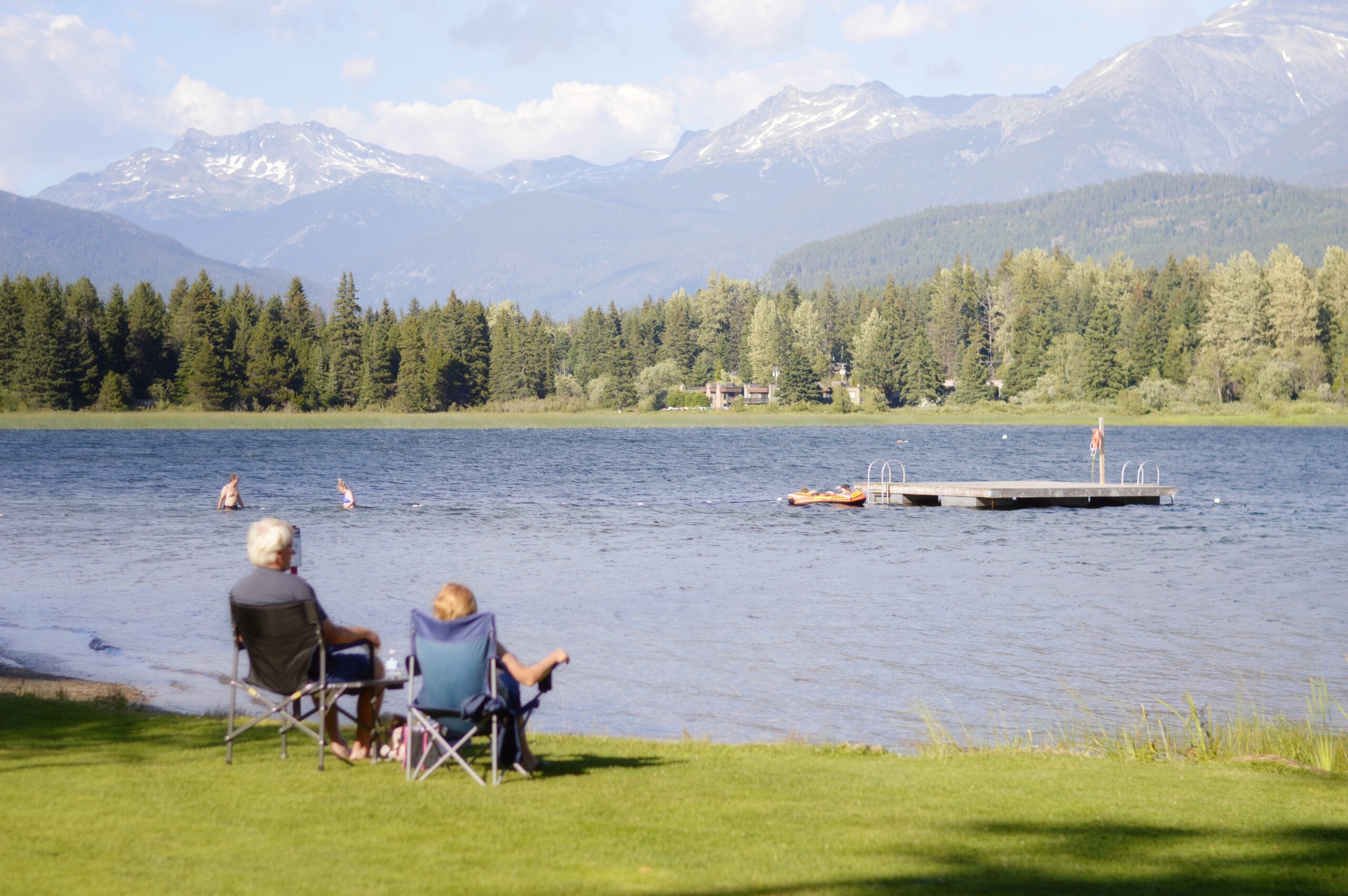
December 21, 2023
Vacation Rental Pricing Tools: Optimize Your Income with Smart Strategies
Striking the right balance with your Airbnb listing price can […]

January 3, 2024
Vacation Rental Welcome Book: Crafting the Perfect Welcome for Guests
Thinking of hosting your lake house on Lake? Here is everything you need to know to create...
Don't have an account yet? Register
Already have an account? Sign In
Reset Password
Please enter your username or email address, you will receive a link to create a new password via email.
- Brochure Download
Tour guiding – turning passion into profession
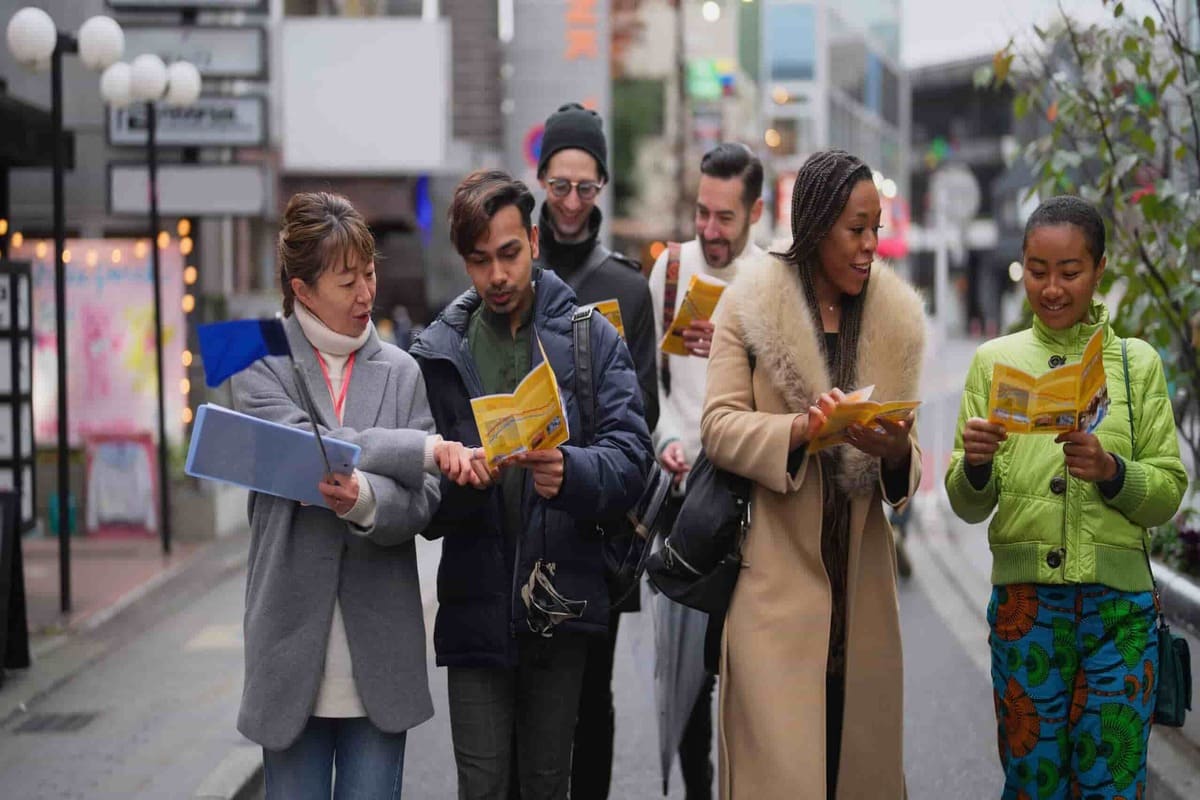
Are you someone who loves to explore new places and connect with people from different backgrounds? Are you passionate about sharing your knowledge of fascinating destinations? If so, becoming a tour guide might be the ideal career choice for you. Tourism is bigger business than ever and data from 2022 reveals there were more than 960 million international tourist expeditions , creating many opportunities for tour guides. In this article, we will dive into the thrilling world of tour guiding. We will discuss the essential aspects of this profession, the necessary qualifications, job opportunities, and how to effectively showcase your skills as a potential guide.
What is tour guiding?
Tour guiding goes beyond simply showing people around a destination. It involves escorting individuals or groups to various points of interest, such as historic sites, museums, zoos or gardens, as well as educating and enlightening visitors about the wonderful places they visit. You would also help make sure tourists are safe and comfortable during their visit.
As well as enhancing the overall tourist experience, tour guiding goes beyond mere surface-level guidance. Tour guides serve as a vital link between cultures, fostering understanding and appreciation for our diverse world.
Qualifications and skills needed to be a tour guide
Becoming a tour guide involves obtaining the necessary qualifications, developing essential skills and acquiring extensive knowledge about the chosen destination. This enhances the abilities of a tour guide and enriches the overall experience for tourists.
Educational requirements
One great way to become a tour guide is to get a hospitality degree from a reputable hospitality school. While a degree is not always mandatory, it can offer advantages in the competitive field of tour guiding. Popular majors for aspiring tour guides include history, tourism management, and international relations.
It’s also worth looking into other education and certificates. You might be able to get local guiding qualifications for specific areas. If you’re interested in adventure tours, having additional certifications in areas such as first aid or wilderness survival can boost your employability.
Personality traits and characteristics
Being a successful tour guide is more than simply providing information. It also requires certain personality traits to engage and connect with visitors on a personal level. Among the qualities you’ll need are:
- Communication skills : it is essential you can communicate information effectively to ensure visitors fully comprehend the historical or cultural importance of various sites
- Emotional intelligence: paying attention to guests’ reactions and promptly addressing their questions and requirements helps create memorable experiences
- Organization: you need good organization and time management skills to give tours successfully
Knowledge and expertise
If you’re going to be imparting knowledge of a particular area, you’ll need to know your stuff. Much of what you need to know can be studied, while some you will pick up as you work. The kind of expertise you need to build includes:
- A comprehensive understanding of the geography, culture, history and architecture of destinations
- Knowledge of green tourist activities
- Speaking several languages – this enormously expands your potential audience
Types of tour guides
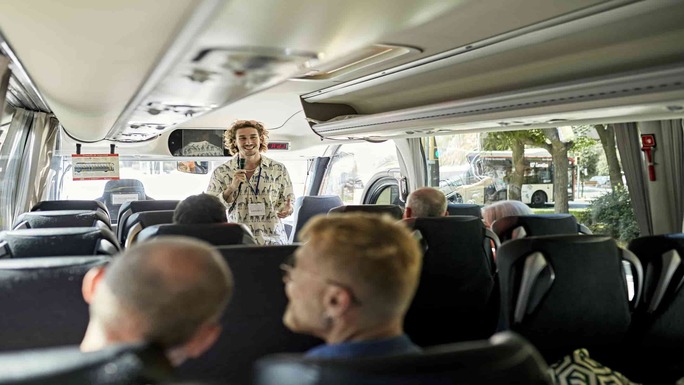
xavierarnau/E+ via Getty Images
Essentially, this profession is divided into two major categories: local tour guides and international tour guides. While there is a great deal of crossover, these roles are distinct from each other and demand customized skill sets.
Local tour guides
Local guiding is a challenge and an opportunity. To excel at being a local tour guide, you need to possess specialist knowledge of a locale and its historical sites, eateries only locals know and cultural attractions tucked away in back streets.
Some key tips for local tour guides are:
- Organize attraction visits outside peak times and rush hours
- Recommend food destinations to provide travelers with unique gastronomic experiences
- Provide tips about the best shopping destinations for local goods
International tour guides
International tour guides are professionals who are experienced travelers and have acquired comprehensive knowledge.
As with local guiding, you’ll deliver compelling stories filled with details related to the history or culture of visited locations. But there are additional requirements for handling international tours, such as possessing proficiency in multiple languages, managing accommodation and looking after transport logistics.
Working internationally often means you are linked directly with a travel company and this can improve your job prospects globally.
Responsibilities of a tour guide
Tour guides create meaningful experiences connecting tourists with their surroundings. They handle the tourism experience from start to finish, including planning, leading and communicating closely with clients.
Planning tours and itineraries
This is a key task that demands meticulous attention to detail. The focus is on crafting a seamless experience for clients, considering factors such as timing and accessibility. Skillful itinerary design helps ensure memorable experiences for guests.
Leading tours
This includes sharing facts and bringing the culture and history of a place to life. There’s also a lot of behind-the-scenes work, such as being aware of any safety concerns, navigating and ensuring clients are comfortable and engaged.
Effective communication
Communicating well with your clients, potential guests, hotels, attraction staff and restaurants is paramount. Both written and verbal communication skills are essential and will help you organize visits with people from different cultures.
Working conditions of a tour guide
Tour guiding can be an exhilarating career choice, with new adventures around every corner. Nonetheless, before stepping into this exciting profession, it’s important to have a comprehensive understanding of the working conditions involved.
Hours and schedules
As a tour guide, your job schedule will largely depend on the type of tours you conduct. There is no standard ‘nine-to-five’ routine in tour guiding. For example, if you specialize in local guiding for city-oriented landmarks or museums, your shifts would mostly align with their operational hours during the day. Alternatively, if you are involved in eco-tours such as birdwatching, you may find early mornings or dusk are your peak times due to animal activity. You should also expect your working hours to change with the seasons.
Work environment
As you would expect, the tour guiding working environment varies significantly depending upon the location and type of tours led by guides.
If you like the outdoors, you could flourish as a nature guide where your work environment could be national parks, wildlife sanctuaries or botanical gardens. On the other hand, city tour guides specialize in urban settings where architecture and built heritage dominate. For international tour guides, you’ll likely operate in a variety of countries and experience different climates, languages and cultures.
Career path and progression for a tour guide
The path to becoming a tour guide could start with a qualification or through being a junior guide, where your main duties might be welcoming tourists at locations and providing them with general assistance. As you gain experience on the job, expanding your expertise in local guiding or becoming certified, more doors will open for you.
After establishing yourself, you could progress into roles such as senior guide or management, overseeing other guides’ work and devising customized travel plans.
Tour guides may also venture into alternative professions related to their role in other areas, such as:
- Travel advisor : an experienced tour guide may decide to draw on their knowledge about multiple destinations and vacation planning as a travel advisor.
- Destination marketer : using your experience of what attracts people to certain areas, you could transition towards promoting those unique offerings through destination marketing.
If you’re looking to join this exciting field, consider studying hospitality and tourism management . It will provide you with a broader understanding of the travel industry and prepare you for leadership roles in the tourism industry. Be sure to read about the difference between hospitality management degrees and tourism studies to find which type of course suits your goals best.
Current opportunities for a tour guide
There is great potential in tour guiding that can be accessed through various avenues such as apprenticeships, specialized courses and job opportunities.
Apprenticeships
An apprenticeship presents a rich learning experience and could serve as a springboard for those wishing to start their journey as a tour guide. Shadowing seasoned guides, you’ll gain first-hand knowledge about how to become a tour guide and could start leading your own tours, making it a highly practical way to learn.
If you want to aim for management roles, a specialized degree would help you gain the right skills. A hospitality degree can help you learn how to manage teams in tourism and how to create unforgettable experiences for clients.
Start your journey into tour guiding by learning from industry experts and through professional internships that will help you land exciting roles.

As well as with traditional travel agencies and resorts, skilled tour or city guides can find opportunities in a variety of sectors. Museums and historic sites often seek knowledgeable guides, while national parks require experts who can share information and enforce safety regulations. Tour guiding skills are also highly valued in hospitality careers as hotels and resorts aim to enhance guest services.
How to highlight your tour guiding skills
Knowing how to showcase your tour guiding skills effectively in a job application is key if you want to stand out. We’ll focus on putting those skills in a resumé or cover letter and highlighting them in an interview.
On a resumé or cover letter
Your resumé or cover letter gives potential employers their first impression of who you are as a professional. You can make it count in the following ways:
- Starting with your credentials: mention relevant education, training courses and any guiding badges earned from recognized bodies such as the Institute of Tourist Guiding
- Including specifics: start with a list of basic tour guide skills such as organization and public speaking as well as specifics such as local knowledge or language proficiency
- Using examples: describe how you’ve used your skills in previous roles
- Highlighting achievements: provide quantifiable achievements such as boosting customer satisfaction ratings
For the job interview
During interviews, conveying passion will be as important as demonstrating expertise. Some ways you can do this are:
- Discussing why you decided on becoming a tour guide
- Giving specific instances when asked about qualifications or experiences
- Doing your research on the role you’re applying for
- Displaying genuine curiosity and enthusiasm to enhance credibility
Try to ensure each response emphasizes why you consider guiding to be more than just a job and demonstrate how passionate you are to deliver excellence.
Tour guiding is a profession brimming with potential for those who have a passion for history, culture or the outdoors. Tour guides undertake the significant task of rendering unfamiliar places accessible to tourists from various parts of the globe.
The qualifications of a tourist guide go beyond formal education. Acquiring essential skills such as excellent communication skills, enthusiasm, organization and extensive knowledge about various subjects is hugely important. To flourish in your career path as a tour guide and gain a competitive advantage when applying for tour guide jobs, you can gain skills on the job as a tour guide or study a degree in tourism and hospitality.
Photo Credit
Main Image: recep-bg/E+ via Getty Images

- Industry News

Welcome to Les Roches
Privacy overview.
sorry! Javascript is not enabled
Need Quick Answers? We Call Back in 5 Seconds!
Call Center
Available Now

- Home /
- Blog /
- Turkey /
The Importance of The Tour Guide

What is a Tour Guide?
Top 7 reasons why good tour guides are so important, tour guiding skills, have an amazing travel experience with safaraq.
A tour guide is an individual who specializes in leading and accompanying travellers or tourists throughout various destinations, providing them with informative and engaging experiences. These knowledgeable professionals possess a deep understanding of the history, culture, attractions, and local customs of the places they guide visitors through.
They play a crucial role in ensuring that tourists have an enjoyable and enriching journey by offering insights, answering questions, and offering assistance along the way. Moreover, tour guides often act as cultural mediators, facilitating interactions between travellers and locals, promoting cross-cultural understanding, and enhancing the overall travel experience.
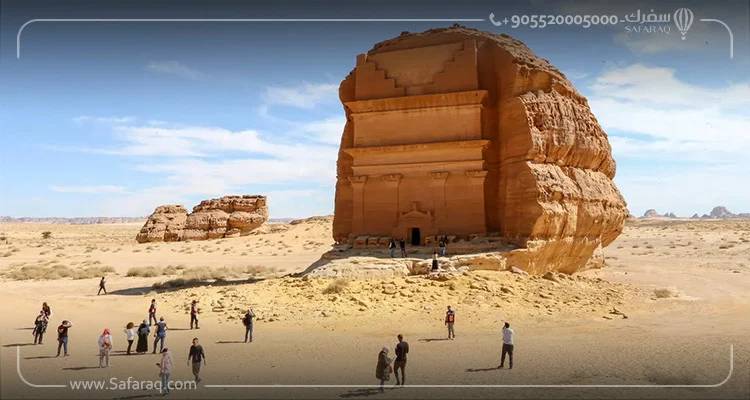
- Navigation: Good tour guides serve as expert navigators, ensuring that you don't get lost and helping you make the most of your time in a new destination. They know the best routes, landmarks, and hidden gems, allowing you to explore with confidence.
- Administrative Support: Tour guides handle administrative tasks, such as organizing transportation, managing flight bookings , and coordinating schedules. This frees you from logistical hassles, enabling you to focus on enjoying your trip.
- Safety and Security: One of the essential roles of tour guides is to prioritize your safety. They are familiar with the local environment, potential risks, and safety protocols, ensuring that you feel secure throughout your journey.
- Interpretation: Tour guides act as interpreters, bridging the language and cultural gaps between travellers and the local community. They facilitate communication, provide cultural context, and offer insights into the historical and cultural significance of the places you visit.
- Access to Deals: Experienced tour guides have established relationships with local vendors, hotels, and attractions. This enables them to secure the best deals and discounts for you, helping you save money and get the most value out of your travel experience.
- Photography Assistance: Good tour guides often have a keen eye for capturing memorable moments. They can help take photos of you and your group at iconic landmarks, ensuring that you have high-quality mementos of your trip.
- Comprehensive Experience: With their extensive knowledge and attention to detail, good tour guides ensure that you don't miss out on any important sights, attractions, or experiences. They plan itineraries carefully , ensuring that you get a comprehensive and well-rounded exploration of the destination.
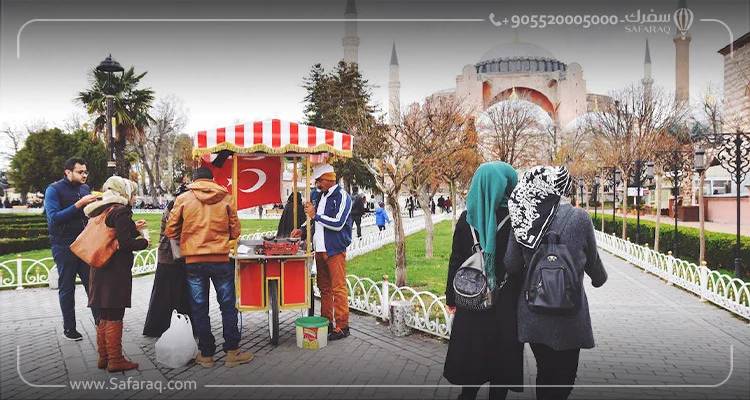
Tour guiding requires a diverse set of skills to effectively engage and assist travellers. Here are some essential skills that proficient tour guides possess:
Communication: Excellent communication skills are crucial for tour guides. They must be able to convey information clearly and effectively, adapting their communication style to suit diverse audiences. They should have strong verbal and non-verbal communication skills to engage and connect with travelers.
Improvisation: While tour guides often follow a planned itinerary, unexpected situations may arise during a trip. Being able to think on their feet and adapt to changing circumstances is a valuable skill. Quick problem-solving and improvisation skills enable tour guides to provide seamless experiences, even in challenging or unforeseen situations.
Powerful Memory: Remembering facts, historical details, names, and anecdotes is essential for tour guides. They must possess a strong memory to recall and deliver information accurately, ensuring an enriching and informative experience for travellers.
Time Management: Tour guides need excellent time management skills to ensure that the itinerary is followed and all scheduled activities and visits are completed within the allotted time frame. They must strike a balance between providing enough time for exploration and adhering to the planned schedule.
Sense of Humor: A sense of humour can greatly enhance the tour experience for travelers. It helps create a relaxed and enjoyable atmosphere, fostering a positive connection between the guide and the group. A well-placed joke or a lighthearted approach can make the tour more engaging and memorable.
These skills, including effective communication, improvisation, a powerful memory, time management, and a sense of humour, contribute to a tour guide's ability to provide an informative, entertaining, and enjoyable experience for travellers.
Check out our offers for the best tours in Turkey .
Are you ready to embark on an unforgettable travel adventure? Look no further than Safaraq to ensure an amazing travel experience from start to finish. Safaraq is a leading travel agency dedicated to curating exceptional journeys that cater to your unique interests and desires. Here's why Safaraq should be your go-to choice:
Tailored Experiences: Safaraq understands that each traveller is different, with distinct preferences and interests. We go the extra mile to personalize your trip, designing itineraries that align with your specific needs. Whether you seek cultural immersion, adventure, relaxation, or a combination of all three, Safaraq will craft a journey that exceeds your expectations.
Expert Guidance: With Safaraq, you're in the hands of seasoned travel professionals who possess extensive knowledge and expertise in the destinations we offer. Our team of experienced tour guides ensures that you receive insightful and engaging commentary, adding depth and meaning to your travel experiences.
Seamless Logistics: Leave the logistics to Safaraq and enjoy a hassle-free journey. From transportation and accommodations to ticket bookings and dining arrangements, we handle every detail, ensuring a smooth and seamless travel experience. Relax and savour every moment, knowing that Safaraq has taken care of all the practicalities.
Authentic Cultural Immersion: Safaraq believes in providing authentic and immersive cultural experiences. We take you off the beaten path, introducing you to local communities, traditions, and hidden gems. Immerse yourself in the vibrant fabric of your destination, creating meaningful connections and memories that will last a lifetime.
Safety and Security: Your safety is of utmost importance to Safaraq. We carefully select trusted partners, maintain high standards of safety protocols, and stay updated on travel advisories. Travel with peace of mind, knowing that Safaraq prioritizes your well-being at all times.
Exquisite Accommodations and Dining: Safaraq ensures that your accommodations reflect the essence of your destination, be it a luxury resort, a charming boutique hotel, or an immersive cultural stay. We also curate culinary experiences that showcase the local flavours and gastronomic delights, tantalizing your taste buds with authentic cuisine.
Memorable Extras: Safaraq goes above and beyond to make your journey truly exceptional. From surprise experiences and exclusive access to unique attractions to special celebrations and thoughtful touches, we add those extra magical moments that make your trip unforgettable.
Get ready to embark on a remarkable travel experience with Safaraq. Let us transform your dreams into reality as you explore new horizons, forge connections with different cultures, and create memories that will last a lifetime. Safaraq is your gateway to extraordinary travel adventures.
Watch the follwing video to learn how to plan a nice trip for you and your family:
Featured tourist services
We offer top tourist services with the highest standards of quality and luxury with 24/7 follow-up.
Flight reservations
Tourist programs
Hotels and Resorts
Car Reservation
Group Tours
VIP Services
Enjoy Top Tourist Programs With Safaraq
Let Us Contact You
Subscribe To Our Newsletter
Find More About The Latest Safaraq
Choose Tourism Programs
Choose the tour program for you and your family.

Thanks you for your trust
Thank you, your message was sent successfully. We will contact you as soon as possible
- Submit Your Request To Get The Best Tourism Offers Ever

Contact your tour advisor
to find out about the best offers and tourist information
Let's call you
Completely free consultations
Honeymoon offer in Turkey
Honeymoon Experience
Your promo code:
Send Your Information to Enjoy your offer
Winter is here! Check out the winter wonderlands at these 5 amazing winter destinations in Montana
- Travel Guide
What Is The Job Of A Tour Guide
Published: December 14, 2023
Modified: December 28, 2023
by Brigid Cloutier
- Plan Your Trip
Introduction
When you embark on a journey to explore a new destination, you often rely on the expertise and guidance of a tour guide to make your experience memorable and enriching. A tour guide is someone who possesses deep knowledge and passion for a particular location or activity, and their job is to lead and educate tourists throughout their journey.
Whether you’re visiting ancient ruins, exploring natural wonders, or immersing yourself in the culture of a vibrant city, a tour guide is there to enhance your understanding and appreciation of the place you’re visiting. They bring the destination to life by sharing fascinating stories, historical facts, and local insights that you may not find in guidebooks or online resources.
But being a tour guide is not just about reciting facts and figures. It requires a unique skill set and a genuine love for adventure and exploration. Tour guides play a crucial role in ensuring the safety, enjoyment, and satisfaction of the tourists they accompany. From providing historical and cultural information to managing logistics and handling group dynamics, their responsibilities are diverse and demanding.
In this article, we will delve into the job of a tour guide, exploring the various responsibilities they undertake to create an unforgettable experience for travelers. We will examine the importance of their role in preserving the destination’s heritage, ensuring the safety of tourists, and facilitating seamless travel logistics. Additionally, we will explore the key skills and qualities that make a tour guide truly exceptional.
So, if you’ve ever been curious about what goes on behind the scenes and the incredible work tour guides do, join us as we take a closer look into the fascinating world of tour guiding.
Role of a Tour Guide
A tour guide serves as a bridge between travelers and the destination they are visiting. Their primary role is to provide information, guidance, and assistance, ensuring that tourists have a captivating and stress-free experience. Let’s explore the different aspects of the role of a tour guide:
Education and Information: One of the main responsibilities of a tour guide is to educate and inform tourists about the history, culture, and significance of the places they visit. They possess in-depth knowledge of the destination and are skilled at sharing interesting facts, anecdotes, and stories that bring the location to life. They provide context and help travelers understand the significance of various sites and landmarks, making the experience more meaningful.
Guidance and Direction: Tour guides lead the way, ensuring that tourists navigate through the destination smoothly. They are responsible for creating and implementing itineraries, organizing transportation, and coordinating logistics. They ensure that tourists are aware of the schedule, know where to go, and have all the necessary information for a hassle-free trip.
Assistance and Support: A tour guide is there to assist travelers throughout their journey. They provide recommendations on restaurants, accommodations, and local attractions. They offer assistance with language barriers, currency exchanges, and any other challenges that may arise during the trip. They are the go-to person for any inquiries or concerns, offering personal attention and support to ensure a seamless travel experience.
Entertainment and Engagement: Tour guides are skilled storytellers who captivate their audience with engaging narratives. They create an immersive experience by sharing fascinating tales, legends, and historical anecdotes during the tour. They keep the group entertained and engaged, fostering a friendly and lively atmosphere that enhances the overall enjoyment of the journey.
Facilitation and Safety: Tour guides are responsible for the safety and well-being of the tourists under their care. They ensure that all safety protocols are followed, provide guidance on proper behavior and etiquette, and handle any emergencies or unforeseen circumstances that may arise. They are trained in first aid and are equipped to handle minor medical issues and ensure the overall security of the group.
Building Connections: Tour guides have the opportunity to connect people from different backgrounds and cultures. They foster a sense of camaraderie within the group, encouraging interaction and friendship among the travelers. By creating a welcoming and inclusive environment, they ensure that everyone feels comfortable and included throughout the journey.
As you can see, being a tour guide is a multi-faceted role that requires a combination of knowledge, skills, and interpersonal abilities. These dedicated individuals are passionate about their destinations and are committed to making every adventure a memorable and enriching experience for the travelers they guide.
Responsibilities of a Tour Guide
A tour guide’s responsibilities extend far beyond simply providing information and guiding tourists through a destination. They play a vital role in ensuring the smooth operation of a tour and the satisfaction of the travelers. Let’s explore some of the key responsibilities of a tour guide:
Knowledge and Expertise: A tour guide must possess a deep understanding of the destination they are guiding in. They should be well-versed in the history, culture, geography, and local customs to provide comprehensive and accurate information to tourists. Their knowledge enables them to answer questions, share interesting facts, and offer insights that enhance the overall experience.
Organizing Itineraries: Tour guides are responsible for creating well-planned itineraries that maximize the time spent in each location. They must carefully select and prioritize the key sights, activities, and experiences that showcase the best of the destination. This includes coordinating transportation, managing entry tickets, and ensuring a balance between guided activities and free time.
Managing Group Dynamics: Tour guides must be skilled at managing diverse groups of individuals with different personalities, preferences, and needs. They must foster a friendly and inclusive atmosphere within the group, promoting cooperation and positive interactions. In case of conflicts or disagreements, they need to address them calmly and efficiently to maintain a harmonious travel experience for everyone.
Ensuring Safety and Security: The safety and security of tourists are of utmost importance. Tour guides must be well-prepared to handle any emergencies or potential risks that may arise during the tour. They need to be knowledgeable about safety protocols, first aid procedures, and emergency contacts. Additionally, they must keep a vigilant eye on the group, ensuring that everyone is accounted for and following safety guidelines.
Providing Cultural Context: A significant part of a tour guide’s responsibility is to provide cultural context to the travelers. They should be able to explain and interpret local customs, traditions, and etiquette. This helps tourists to understand and appreciate the destination’s cultural richness, fostering respect and sensitivity towards the local community.
Language and Communication Skills: Effective communication is essential for a tour guide to convey information clearly and engage with the group. They should be proficient in the language(s) spoken by the majority of the tourists and possess excellent public speaking skills. Good communication enables tour guides to captivate their audience, manage expectations, and address any concerns or questions that may arise.
Customer Service and Interpersonal Skills: Tour guides should have exceptional customer service and interpersonal skills. They need to be friendly, approachable, and attentive to the needs of the travelers. By offering personalized attention and creating a welcoming environment, they enhance the overall customer experience, ensuring that each tourist feels valued and well-cared for.
Flexibility and Adaptability: Travel plans can sometimes change unexpectedly due to weather conditions, unforeseen closures, or other circumstances. Tour guides must be flexible and able to adapt to these changes efficiently. They should have contingency plans in place and be skilled at modifying itineraries on the go, ensuring a seamless experience for the group.
Passion and Enthusiasm: Above all, a tour guide should possess a genuine passion for their destination and a love for sharing it with others. Their enthusiasm is contagious, inspiring and motivating travelers to fully immerse themselves in the experience. It is this genuine love for their work that transforms a good tour into an extraordinary one.
As you can see, the responsibilities of a tour guide go beyond being a source of information. They are entrusted with the task of creating memorable and enjoyable experiences, fostering connections between tourists and the destination, and ensuring the overall success of the journey.
Providing Historical and Cultural Information
One of the primary responsibilities of a tour guide is to provide tourists with valuable insights into the history and culture of the destination they are visiting. By sharing historical and cultural information, tour guides enhance the overall understanding and appreciation of the place, making the experience more meaningful and engaging. Let’s explore this aspect of a tour guide’s job in more detail:
Historical Knowledge: Tour guides are well-versed in the historical background of the destination. They possess a deep understanding of the significant events, eras, and key figures that have shaped the region’s past. They are skilled at conveying this knowledge to tourists by offering engaging narratives, intriguing facts, and anecdotes that breathe life into the historical context. By sharing stories that go beyond the surface level, tour guides provide a richer understanding of the destination’s heritage.
Cultural Insights: In addition to historical information, tour guides also delve into the cultural fabric of the destination. They provide insights into the local customs, traditions, and values that define the community. Whether it’s explaining the significance of festivals, demonstrating traditional arts and crafts, or highlighting unique cultural practices, tour guides help tourists gain a deeper appreciation for the rich diversity of the location.
Contextualizing Attractions: Tour guides play a crucial role in contextualizing the significance of various attractions and landmarks. They go beyond merely pointing out buildings or sites and provide historical and cultural context that allows tourists to fully grasp their importance. By explaining the stories behind iconic monuments, architectural styles, or archaeological ruins, tour guides bring these features to life, fostering a deeper connection between travelers and their surroundings.
Uncovering Hidden Gems: Tour guides are often privy to lesser-known facts, hidden spots, and off-the-beaten-path attractions that may not be readily available in guidebooks. They have local insider knowledge that allows them to share unique and unexpected aspects of the destination. By uncovering hidden gems and sharing these hidden treasures with tourists, tour guides provide a more authentic and enriching experience.
Interpretation and Analysis: Tour guides possess the ability to analyze and interpret the historical and cultural information they present. They go beyond reciting facts and figures and provide a deeper understanding of the impact of past events on the present-day society. By offering analysis and personal insights, tour guides encourage tourists to think critically and engage in meaningful discussions about the destination’s history and culture.
Linking the Past and the Present: A skilled tour guide can connect the past with the present, highlighting how historical events and cultural traditions continue to influence the destination today. By making these connections, they help tourists see the relevance and enduring legacy of the past, fostering a greater appreciation for the living heritage of the place being visited.
Overall, the role of a tour guide in providing historical and cultural information is to add depth and meaning to the travel experience. By sharing their expertise and insights, tour guides create a bridge between the past and the present, allowing travelers to truly immerse themselves in the destination and gain a profound understanding of its historical and cultural significance.
Ensuring Safety and Security of Tourists
One of the paramount responsibilities of a tour guide is to ensure the safety and security of the tourists under their care. They play a crucial role in making sure that travelers can explore and enjoy a destination without any unnecessary risks or concerns. Let’s delve into the various aspects of a tour guide’s role in ensuring the safety and security of tourists:
Risk Assessment and Preparation: Before the tour begins, tour guides assess potential risks and hazards associated with the destination. They stay informed about any safety concerns, such as political unrest, natural disasters, or health advisories. By conducting thorough research and monitoring the situation, they can preemptively make informed decisions and take appropriate measures to ensure the safety of the group.
Implementation of Safety Protocols: Tour guides are responsible for educating and implementing safety protocols among the tourists. They provide guidance on basic safety measures, such as staying hydrated, applying sunblock, and dressing appropriately for the environment. They ensure that the group is aware of any specific safety instructions related to activities like hiking, water sports, or wildlife encounters.
First Aid and Emergency Response: Tour guides often receive training in basic first aid procedures and emergency response. They are equipped to handle minor medical issues, such as cuts, sprains, or dehydration. In case of more serious emergencies, they know how to initiate and coordinate appropriate emergency services, providing immediate assistance until professional help arrives.
Monitoring and Accountability: Throughout the tour, tour guides maintain vigilance and monitor the well-being of the group. They keep track of the whereabouts of each tourist and ensure that everyone is accounted for at all times. By maintaining a headcount and constantly assessing the group dynamics, they can quickly identify any potential safety concerns or issues within the group.
Contingency Planning: Tour guides are skilled at anticipating and preparing for unexpected situations. They have contingency plans in place to handle events like changes in weather conditions, transportation delays, or sudden closures of attractions. By having alternative options and backup arrangements, they ensure that the tour continues smoothly, minimizing any disruptions to the itinerary.
Local Knowledge and Expertise: Tour guides have in-depth knowledge of the local area and are familiar with potential safety risks specific to the destination. They know which areas may be unsafe for tourists or which neighborhoods to avoid. This knowledge enables them to guide the group away from potential hazards and ensure a safe and secure travel experience.
Communication and Emergency Contacts: Tour guides act as a liaison between the tourists and local authorities in case of emergencies. They have access to emergency contact numbers and know how to communicate with local law enforcement, medical services, or embassy representatives if needed. Their communication skills play a crucial role in swiftly and effectively addressing any safety or security concerns that may arise.
Maintaining a Safe Group Environment: A tour guide fosters a supportive and secure group environment by establishing clear guidelines and rules for the tourists to follow. They address any concerns about personal safety, theft prevention, or local scams that may be prevalent in the area. By creating awareness and fostering a sense of responsibility within the group, they help minimize risks and ensure a safe travel experience.
Constantly Reassessing Safety: Safety is not a one-time consideration but an ongoing commitment for tour guides. They continuously reassess and manage potential risks throughout the tour. They adapt their plans and actions as necessary to ensure that tourists remain safe, comfortable, and secure throughout the journey.
The safety and security of tourists are of paramount importance for a tour guide. By being vigilant, proactive, and prepared, tour guides create a sense of trust and confidence among travelers, allowing them to fully immerse themselves in the destination and enjoy a worry-free exploration of new horizons.
Handling Logistics and Itinerary Planning
A significant part of a tour guide’s role is to handle the logistics and planning of the itinerary for a smooth and organized travel experience. From arranging transportation to coordinating activities, tour guides take on various responsibilities to ensure a seamless journey. Let’s explore the key aspects of a tour guide’s role in handling logistics and itinerary planning:
Transportation Arrangements: Tour guides are responsible for organizing transportation for the group. This includes coordinating airport transfers, arranging ground transportation during the tour, and ensuring that all transportation arrangements align with the itinerary. They consider factors such as comfort, safety, and efficiency when selecting transportation options, ensuring that travelers can move from one location to another with ease.
Accommodation Coordination: Tour guides assist in selecting and booking suitable accommodations for the group. They consider factors such as location, budget, and amenities to provide a comfortable and convenient stay for the travelers. They liaise with hotels or accommodations to ensure that reservations are in order and that any specific requests or requirements are addressed.
Activity and Sightseeing Planning: Tour guides carefully plan and schedule activities and sightseeing opportunities to maximize the traveler’s experience. They select and coordinate visits to key attractions, landmarks, and cultural sites that are relevant to the destination. They also take into consideration any special events, festivals, or exhibitions that may enhance the itinerary, providing travelers with unique and memorable experiences.
Optimizing Time and Resources: Tour guides need to strike a balance between providing a comprehensive experience and allowing for downtime and flexibility. They plan the itinerary in such a way that travelers have ample time to explore and appreciate each destination. By optimizing the use of time and resources, tour guides ensure that the itinerary is well-paced, allowing for a fulfilling and enjoyable travel experience.
Managing Entrances and Tickets: Tour guides handle the logistics of securing entrances and tickets for attractions, museums, or other venues included in the itinerary. They ensure that the necessary bookings are made in advance, eliminating the need for travelers to wait in long queues or face disappointment due to sold-out tickets. By taking care of this aspect, tour guides save time for tourists and eliminate unnecessary stress.
Flexibility and Adaptability: While it is crucial to have a well-planned itinerary, tour guides also need to be flexible and adaptable. They understand that unexpected situations might arise, such as weather conditions, unforeseen closures, or changes in travel schedules. In such instances, they make adjustments to the itinerary, allowing for alternative activities or rearranging the order of visits to ensure a seamless travel experience.
Providing Recommendations and Local Insights: Tour guides offer recommendations for dining options, shopping areas, and additional attractions that may not be included in the initial itinerary. They utilize their local knowledge and expertise to suggest hidden gems, local cuisine, or unique experiences that travelers may appreciate. This personalized guidance helps visitors make the most of their time in the destination.
Clear Communication to the Group: A tour guide communicates the itinerary and any changes or updates to the group effectively. They provide clear instructions on meeting points, departure times, and any specific requirements for each activity. By ensuring transparent communication, tour guides help travelers stay informed and minimize any confusion or misunderstandings.
Attention to Detail: Tour guides pay meticulous attention to detail when planning the logistics and itinerary. They anticipate potential issues, consider accessibility requirements, and plan for contingencies. By focusing on the small details, they ensure that travelers can fully immerse themselves in the experience without worrying about logistical challenges.
The role of a tour guide in handling logistics and itinerary planning is vital for creating a well-organized, enjoyable, and stress-free travel experience. Their expertise and attention to detail allow travelers to focus on immersing themselves in the destination, knowing that all the practical aspects of their journey are taken care of.
Managing Group Dynamics
As a tour guide, managing group dynamics is an essential skill that ensures a harmonious and enjoyable travel experience for all participants. Tourists often come from different backgrounds, have unique personalities, and may have varying expectations. It is the tour guide’s responsibility to create a cohesive and inclusive group dynamic that fosters a positive atmosphere. Let’s explore the key aspects of a tour guide’s role in managing group dynamics:
Establishing Group Guidelines: The tour guide sets clear guidelines and expectations from the beginning of the tour. These guidelines may include respecting each other’s personal space, adhering to the agreed-upon schedule, and maintaining a positive and inclusive attitude towards fellow travelers. By establishing these guidelines, tour guides create a framework for a respectful and cohesive group dynamic.
Encouraging Communication and Engagement: Tour guides facilitate open communication channels within the group. They encourage participants to interact, share their experiences, and engage in conversations. This fosters a supportive and inclusive environment where everyone feels comfortable expressing themselves and building connections with fellow travelers.
Addressing Individual Needs: Tour guides understand that each traveler is unique and may have specific needs or concerns. They take the time to listen to individual concerns and address them appropriately. By acknowledging and accommodating these needs within reason, tour guides ensure that everyone feels valued and included throughout the journey.
Fostering a Welcoming Atmosphere: Tour guides create a warm and inviting atmosphere within the group. They set the tone by being approachable, friendly, and attentive. By creating a sense of camaraderie and inclusivity, tour guides encourage participants to feel comfortable and open to connecting with their fellow travelers.
Recognizing and Respecting Differences: Tour guides embrace and celebrate the diversity within the group. They encourage participants to appreciate and learn from the different perspectives, cultures, and backgrounds of their fellow travelers. By fostering an environment of respect and understanding, tour guides promote cultural exchange and a shared sense of appreciation for individual differences.
Mediating and Resolving Conflict: Conflict can occasionally arise within a group setting. Whether it’s a difference of opinion, misunderstandings, or clashes of personalities, tour guides are skilled at addressing and diffusing conflicts effectively. They act as mediators, encouraging dialogue, and finding mutually beneficial resolutions. By addressing conflicts promptly and fairly, tour guides maintain a harmonious group dynamic.
Encouraging Team Spirit: Tour guides cultivate a sense of teamwork and cooperation within the group. They promote the idea that everyone is working together towards a shared goal: to have an enjoyable and memorable travel experience. By encouraging participants to support and help each other, tour guides foster a team spirit that enhances the overall journey.
Creating Opportunities for Bonding: Tour guides organize activities or experiences that encourage group bonding. These activities can range from group meals, team-building exercises, or engaging in local traditions together. By providing opportunities for participants to connect on a deeper level, tour guides strengthen the group dynamic and create lasting memories for the travelers.
Leading by Example: Tour guides act as role models for the group. They lead by example, demonstrating respect, patience, and enthusiasm throughout the journey. By embodying these qualities, they encourage participants to behave in a similar manner, contributing to a positive and cooperative group dynamic.
Effective management of group dynamics is key to ensuring a pleasant and memorable travel experience. A skilled tour guide understands the importance of creating a supportive and inclusive environment, where travelers can connect, learn from one another, and foster lifelong friendships. By fostering a positive group dynamic, tour guides enhance the overall enjoyment and satisfaction of the journey for everyone involved.
Language and Communication Skills
Language and communication skills are fundamental for a tour guide to effectively convey information, engage with tourists, and create a seamless travel experience. As a bridge between different cultures and languages, tour guides must possess strong communication abilities to connect with travelers from various backgrounds. Let’s explore the importance of language and communication skills in the role of a tour guide:
Multilingual Proficiency: Tour guides should be proficient in the language(s) spoken by the majority of the tourists in their group. Fluency in multiple languages allows them to communicate directly with visitors, eliminating language barriers and ensuring clear and accurate information exchange. This skill enhances the overall travel experience by facilitating smooth communication and understanding.
Clear and Engaging Presentation: Tour guides must possess excellent public speaking skills to convey information effectively. They should be able to communicate clearly, using a tone and pace that is easily comprehensible to all participants. Additionally, they should have the ability to adapt their communication style to suit the needs and preferences of the group.
Non-Verbal Communication: Non-verbal communication is equally vital for tour guides. They should be aware of their body language, facial expressions, and gestures, as these can greatly impact how their messages are received. Non-verbal cues can help reinforce explanations, convey enthusiasm, and establish a connection with the group, enhancing the overall communication experience.
Active Listening: A tour guide must possess excellent listening skills. They should be attentive to individual participants, actively listening to their questions, concerns, and feedback. This allows tour guides to address specific inquiries, tailor information to individual interests, and ensure that participants feel heard and valued.
Adaptability to Different Learning Styles: People have diverse learning styles, such as visual, auditory, or kinesthetic. Tour guides with strong communication skills can adapt their presentation techniques to cater to various learning preferences. They may use visual aids, storytelling, hands-on experiences, or interactive activities to engage participants and enhance their understanding of the destination.
Clarifying Complex Information: Tour guides often share historical, cultural, or technical information that may be complex or unfamiliar to participants. They should possess the ability to explain intricate concepts in a simplified and accessible manner. Breaking down complex information into digestible segments enables participants to absorb and retain knowledge more effectively.
Responding to Questions and Enhancing Engagement: Tour guides should be prepared to answer questions from participants spontaneously. They should be knowledgeable and confident in their responses, addressing inquiries with accuracy and authority. Moreover, skilled tour guides go beyond basic answers, initiating engaging discussions and encouraging participants to explore their curiosity further.
Empathy and Sensitivity: Effective communication involves understanding and empathizing with participants, particularly when dealing with diverse cultural backgrounds. Tour guides should respect and adapt to different communication styles, ensuring that their messages are culturally appropriate and sensitive. This fosters a welcoming and inclusive environment where participants feel valued and acknowledged.
Interpreting and Translating: Tour guides may often act as interpreters, translating information between participants and locals who may not speak the same language. Accurate language interpretation skills enable seamless communication during interactions with locals, ensuring that participants can fully engage with the destination’s culture and people.
Conflict Resolution: In situations where conflicts arise within the group, tour guides must possess strong communication skills to mediate and resolve issues calmly and diplomatically. Effective communication can help diffuse tensions, foster understanding, and reach mutually agreeable solutions, ensuring a positive group dynamic.
Language and communication skills are indispensable for tour guides to effectively convey information, facilitate cultural exchange, and create a memorable travel experience. By employing these skills, tour guides can bridge language barriers and connect with participants on a deeper level, fostering a rich and engaging exploration of the destination.
Customer Service and Interpersonal Skills
Customer service and interpersonal skills are crucial for tour guides to provide a high-quality and personalized travel experience. As the main point of contact for tourists, tour guides must possess excellent interpersonal abilities to establish rapport, address individual needs, and ensure customer satisfaction. Let’s explore the importance of customer service and interpersonal skills in the role of a tour guide:
Empathy and Friendliness: Tour guides should approach interactions with empathy, understanding, and a friendly demeanor. They create a welcoming and inviting atmosphere, making participants feel comfortable, valued, and at ease throughout the journey. A positive and friendly attitude sets the foundation for a pleasant and enjoyable travel experience.
Active Listening and Communication: Effective communication goes hand in hand with exceptional customer service. Tour guides actively listen to participants, paying attention to their needs, preferences, and concerns. They address inquiries promptly and clearly, ensuring that participants feel heard and understood. By actively engaging in conversations, tour guides facilitate meaningful interactions that enhance the overall travel experience.
Personalized Attention: Each traveler is unique, with individual preferences and requirements. Tour guides should be attentive to these specific needs and provide personalized attention whenever possible. Whether it’s dietary restrictions, mobility concerns, or special interests, tour guides strive to accommodate individual requirements to ensure a customized and enjoyable experience for everyone.
Resolving Issues and Concerns: In the event of any issues or challenges, tour guides handle them promptly and professionally. This includes addressing complaints, resolving conflicts, or finding solutions to unexpected situations. By demonstrating empathy, flexibility, and problem-solving skills, tour guides ensure that participants feel supported and confident in their ability to resolve any concerns.
Organizational and Time Management: Excellent organizational and time management skills are essential for tour guides to deliver a smooth and well-coordinated travel experience. They keep track of schedules, manage logistics, and ensure that participants have sufficient time to explore each destination. By effectively managing time and resources, tour guides create an efficient and enjoyable itinerary.
Patience and Adaptability: Travel can sometimes be unpredictable, with unforeseen delays or changes in plans. Tour guides exhibit patience and adaptability in such situations, maintaining a positive and calm demeanor. By demonstrating flexibility and being responsive to unexpected circumstances, tour guides help participants navigate through any challenges and ensure a seamless travel experience.
Conflict Resolution: Conflict may occasionally arise within a group setting. Tour guides possess conflict resolution skills to address and diffuse these situations diplomatically. They strive to find mutually agreeable solutions, foster understanding, and maintain a harmonious group dynamic. By effectively managing conflicts, tour guides create a positive and cooperative environment for all participants.
Maintaining a Professional Image: Tour guides represent the travel company or destination they are associated with. As such, they maintain a professional image by being well-groomed, punctual, and courteous. They uphold high standards of professionalism and conduct, ensuring that participants perceive them as trustworthy and reliable.
Going Above and Beyond: Exceptional tour guides exceed expectations by going above and beyond to provide outstanding customer service. They anticipate participants’ needs, offer unexpected gestures of hospitality, and create memorable experiences. By creating moments that truly wow participants, tour guides leave a lasting impression and foster positive word-of-mouth recommendations.
Continuous Improvement: Great tour guides strive for continuous improvement in their customer service and interpersonal skills. They actively seek feedback, evaluate their performance, and seek opportunities for professional development. By constantly honing their skills, tour guides ensure that they deliver an exceptional travel experience that exceeds expectations.
Customer service and interpersonal skills are essential for tour guides to provide exemplary assistance and create a positive connection with participants. By demonstrating empathy, attentive listening, and a commitment to providing personalized experiences, tour guides ensure that travelers feel valued, satisfied, and enthusiastic about their journey.
Knowledge and Expertise in Tourism
A tour guide’s knowledge and expertise in tourism play a pivotal role in providing a comprehensive and enriching travel experience for tourists. Their in-depth understanding of the destination, combined with their expertise in the tourism industry, allows them to offer valuable insights, expert guidance, and a deeper appreciation of the places visited. Let’s explore the importance of knowledge and expertise in tourism for tour guides:
Destination Knowledge: Tour guides possess extensive knowledge about the destination they are guiding in. They are well-versed in the history, culture, geography, and landmarks of the region. This knowledge enables them to provide accurate, detailed, and up-to-date information to participants, enhancing their understanding and appreciation of the destination.
Local Expertise: Tour guides have intimate knowledge of the local area. They know the best-kept secrets, hidden gems, and off-the-beaten-path locations that may not be widely known to tourists. This expertise allows them to offer unique and memorable experiences, making the journey not only informative but also immersive and authentic.
Historical and Cultural Context: A thorough understanding of the historical and cultural context of the destination is essential for tour guides. This expertise allows them to provide insightful interpretations, narratives, and explanations that connect the past with the present. By highlighting the significance of historical events and cultural traditions, tour guides give participants a deeper understanding of the destination’s heritage.
Navigating Through the Destination: Tour guides possess the knowledge and expertise to navigate through the destination efficiently. They are aware of the best routes, transportation options, and local customs that may impact travel logistics. This expertise allows them to plan itineraries, optimize time, and ensure a seamless travel experience for participants, maximizing their time spent exploring the destination.
Understanding Tourism Practices: Tour guides have a comprehensive understanding of tourism practices and trends. They stay abreast of industry standards, sustainability practices, and responsible tourism initiatives. This expertise allows them to promote ethical and environmentally-friendly tourism experiences and provide participants with insights into the positive impact they can have on the destination and local communities.
Knowledge of Safety and Security: Tour guides possess the expertise to identify and mitigate potential safety and security risks. They are trained in safety protocols, emergency procedures, and first aid. This knowledge allows them to prioritize the well-being of participants, create a safe environment, and respond effectively in case of emergencies or unforeseen circumstances.
Adapting to Cultural Differences: Cultural sensitivity is a vital aspect of a tour guide’s expertise. They are aware of cultural nuances, customs, and etiquette in order to ensure that participants show respect and avoid any unintentional cultural misunderstandings. Their understanding of cultural differences allows them to facilitate meaningful interactions, bridging gaps between different cultures and fostering a sense of appreciation and understanding.
Interpreting and Translating: In multicultural or multilingual settings, tour guides act as interpreters and translators between participants and locals. Their language skills and ability to convey information accurately facilitate communication, ensuring that participants can engage with locals and fully immerse themselves in the destination’s culture and people.
Continual Learning and Professional Development: Exceptional tour guides recognize the importance of continual learning and professional development in the ever-evolving field of tourism. They engage in ongoing education, attend workshops, and stay updated on industry trends and best practices. This expertise enables them to provide a cutting-edge travel experience that incorporates the latest insights and advancements in the tourism industry.
Knowledge and expertise are the foundation of a tour guide’s role in delivering an exceptional travel experience. By staying well-informed, continually expanding their understanding, and honing their expertise, tour guides ensure that participants receive valuable insights, expert guidance, and a deeper connection to the destination they are exploring.
Being a tour guide is much more than just leading a group of travelers through a destination. It requires a unique set of skills, knowledge, and expertise to create a memorable and enriching travel experience. From providing historical and cultural information to ensuring the safety and security of tourists, tour guides play a pivotal role in shaping the journey of exploration and discovery.
Tour guides bring destinations to life by sharing in-depth knowledge, captivating stories, and local insights that go beyond what can be found in guidebooks or online resources. They foster a deeper understanding and appreciation of the history, culture, and significance of the places visited, creating a more meaningful connection between travelers and their surroundings.
In addition to their role as educators and storytellers, tour guides are responsible for managing logistics, planning itineraries, and adapting to unforeseen circumstances. They navigate through the destination efficiently, ensuring that travelers have a seamless and enjoyable travel experience. With their language and communication skills, they bridge cultural and language barriers, creating a cohesive and inclusive group dynamic.
Furthermore, tour guides excel in customer service and interpersonal skills. They provide personalized attention, address individual needs, and go the extra mile to ensure customer satisfaction. By fostering a welcoming and friendly atmosphere, they create a sense of camaraderie and connection among the participants, turning a group of strangers into a community of like-minded explorers.
A tour guide’s expertise in tourism, including their knowledge of the destination, local customs, and safety procedures, is essential for a well-rounded travel experience. Their continual learning and commitment to professional development enable them to stay up-to-date with industry best practices and provide participants with cutting-edge insights and experiences.
In conclusion, tour guides play a vital role in transforming a trip into an unforgettable adventure. Through their knowledge, expertise, and exceptional interpersonal skills, they bring destinations to life, navigate logistics, ensure safety, and create lasting memories for travelers. Their passion for exploration, commitment to excellence, and dedication to customer service make them indispensable for anyone seeking a truly immersive and enriching travel experience.

- Privacy Overview
- Strictly Necessary Cookies
This website uses cookies so that we can provide you with the best user experience possible. Cookie information is stored in your browser and performs functions such as recognising you when you return to our website and helping our team to understand which sections of the website you find most interesting and useful.
Strictly Necessary Cookie should be enabled at all times so that we can save your preferences for cookie settings.
If you disable this cookie, we will not be able to save your preferences. This means that every time you visit this website you will need to enable or disable cookies again.
15 Tour Guide Do’s and Don’ts for Cultural Sensitivity
By Erick Tomaliwan
Share this article:
- Facebook icon
- LinkedIn icon
- Twitter icon

A tour guide can easily make or break an experience based on cultural sensitivity. When they embrace a group’s diversity, everyone feels welcome. On the flip side, miscommunication, impatience, or blatant intolerance often leads to unhappy guests — no matter how exciting a tour may be.
Skip ahead to 15 tour guide do’s and don’ts for cultural sensitivity.
A tour example of cultural sensitivity gone wrong
I know this all too well from a night jungle walk in Costa Rica. Although we spotted a tarantula and a couple of active snakes, our tour guide ended up being the scariest sight of the evening. His constant shouting frightened the group and probably the two-toed sloth we never saw. But the most horrifying part was how he treated my friend from Germany.
Instead of talking about the creepy critters and nocturnal animals with parts of commentary in tour guiding , each member of the group had to take turns reciting from a fact sheet. Already, this was a tedious way to present the information — not to mention it took us back to grade school and the anxiety of reading out loud.
For the native English-speakers, this wasn’t a big deal. But my friend felt uncomfortable the entire time and how the tour guide reacted made it worse. As she struggled with every word, the more frustrated he became. At one point, he even ripped the fact sheet out of her hands and said she couldn’t read anymore.
Needless to say, we walked away wishing we hadn’t booked in the first place — which is something a tour operator hopes to never hear.
Why is being a cultural tour guide important?
When you work in the tourism industry, you encounter guests from all walks of life. It’s a perk because you get to learn about other cultures without traveling full-time. But with it comes the responsibility of respecting and adapting to cultural differences, social norms, and language barriers. Part of that starts with proper tour guide training. Why?

1. Tour guides interact face to face
Without a doubt, your tour guides spend the most time with guests. They take phone bookings, check-in arrivals, show them around and entertain, offer travel advice, handle complaints, answer questions, and so much more. There are countless opportunities for a tiny slip up, and one cultural faux-pas can turn into a negative review.
If your tour guides know how to interact with guests appropriately — regardless of cultural background — you should have nothing to worry about. What does that look like? Check out our tips for effective intercultural communication below.
2. Tour guides are brand ambassadors
Your logo isn’t the only face of your brand — your tour guides are, too. Everything they do and say is a direct reflection of your tour company. When they make a fool of themselves, they also make a fool of your business. Put another way, if they offend a guest, it shows you condone that behaviour.
To ensure your tour guides are on the same page, go over your mission statement and core values during the onboarding process, and as a refresher for team meetings. Let them know what you stand for as a tour company, and why their words and actions should always align.
3. Tour guides represent the destination
Chances are your guests will meet other locals during their trip who can offer a glimpse into the community and way of life. But for the most part, your tour guides give the best insight because of the lengthy interaction and in-depth conversation they have with them.
So essentially, your tour guides act as the welcoming committee. By being culturally sensitive, they demonstrate a hospitable attitude on behalf of your destination — which can influence a guest’s overall perception of the people and place. If they get warm, fuzzy feelings, they might boast about it back home, and even consider living there one day.
4. Tour guides set an example for tourists
Kindness is a chain reaction. It only takes one person to show acceptance for many more to pay it forward. That is to say, a tour guide who takes the time to learn about another’s culture — their background, traditions, and customs — can inspire guests to have similar conversations outside of the tour.
But more so, when they treat everyone in the group with respect, there’s a better chance your guests will do the same and leave a positive social impact of tourism. Ultimately, that’s what travel is all about — making new connections and embracing cultures different from our own.
15 do’s and don’ts in tour guiding
Even if a tour guide claims to be worldly and knowledgeable, it’s easy to forget about cross cultural communication once they get into the routine of facts, stories, and jokes. So here is a cheat sheet they can use as a constant reminder:

- Research before guests arrive: With Checkfront’s Guest Form , your tour guides can find out where guests are from and do a quick Google Search or use an app like CultureMee to see what cultural expectations they need to keep in mind.
- Speak slowly and deliberately: When using our native tongue, many of us tend to talk fast and mumble. But that makes it challenging for those who speak a different language to understand. So have your tour guides practice slowing it down and enunciating — public speaking is all about the delivery anyway.
- Treat every guest equally: One place isn’t better than the next. Your tour guides shouldn’t pick and choose which guests to pay the most attention to based on their unique accents.
- Learn how to say their names: Dale Carnegie says, “A person’s name is to him or her the sweetest and most important sound in any language.” When your tour guides say a guest’s name correctly and use it in conversation, they make them feel valued.
- Respect physical boundaries: This should be standard practice anyways. Tour guides should never touch a guest — unless it’s offering a hand for an awkward step or helping with gear related to the tour.
- Show interest in where they’re from: The number one way to engage with guests is to ask them questions. Since most people love talking about where they live or grew up, your tour guides can start with that.
- Explain more than once: Not everyone is going to understand the first time. If someone asks for clarification, your tour guides should be more than willing to repeat something differently.
- Travel to unfamiliar places: The best way tour guides can learn about other cultures is to go out and explore themselves. Encourage them to travel in the off-season and visit places off the tourist trail.

- Use slang or idioms : Anyone who’s learning another language starts with the basics first. So there might be a little miscommunication if your tour guides drop in local lingo or even popular idioms like “speak of the devil” or “a penny for your thoughts.”
- Get impatient with questions: There are no wrong questions. Even if someone asks something that seems like common sense, your tour guide should never make a guest feel bad about it because to them; it might not be.
- Stereotype nationalities: While some guests will laugh at what their country is known for, others might quickly get offended. That’s why it’s best to avoid poking fun at stereotypes altogether. Let your guests be self-deprecating if they want to instead.
- Discount the feelings of one: When everyone in the group is from one place, and there’s only one from somewhere else, that one guest should still receive the same attention and catering.
- Use offensive hand gestures: One secret to excellent public speaking is animation, but there’s a risk of giving someone the wrong signal. So, your tour guides should become familiar with rude hand gestures from around the world and get out of the habit of using them.
- Make inappropriate jokes: This might seem like a given, but a tour guide can easily cross the line once they build rapport and banter with guests. They can still have funny tour guide jokes that are family-friendly.
- Expect a tip from everyone: In some countries, tipping isn’t customary for customer service. While you hope travelers brush up on local etiquette before their trip, your tour guides shouldn’t hold it against them if a guest leaves without a monetary thank-you.
Final thoughts
Handling cultural differences as a tour guide isn’t always easy — especially with everything else they have to juggle. But as long as they do their best, guests will notice and appreciate the effort.

Take your business to the next level
Online bookings. Flexible pricing. Outstanding support.
Related Articles

What Skills Make a Tour Guide With 5 Star Quality?
Want to hire an outstanding tour guide? Look for these top qualities!
- Guest Experience

Unlock the power of feedback: how to ask your guests for reviews
“Checkfront has met our every business need, so far. Yes, we have had to reach out to Checkfront support for…
Search Blog
Subscribe to our newsletter.
Get tips and strategies to grow your business and impress your guests.
Blog Categories
- Booking Management
- Business Tips
- Marketing Strategies
- Operator Highlights

Your poweful AI Trip Planner
Tour Guiding Tips: Creating Memorable Experience
As a tour guide, you have the incredible opportunity to shape the travel experiences of your guests. To excel in this role, it’s essential to have a toolkit of effective tour guiding tips that will …
Written by: Johny D.
Published on: July 8, 2023

As a tour guide, you have the incredible opportunity to shape the travel experiences of your guests. To excel in this role, it’s essential to have a toolkit of effective tour guiding tips that will elevate your skills and captivate your audience.
In this article, we will explore essential tips and insights that will help you become an outstanding tour guide. From understanding your audience and mastering your knowledge to engaging and connecting with your group, let’s embark on a journey of tour guiding excellence.
Here are your first 7 tips to start:
1. Know Your Audience
Understanding the needs and interests of your tour group:
Each tour group is unique, with different needs, preferences, and interests. Take the time to understand your audience by conducting icebreaker activities, asking questions, and actively listening.
This knowledge will allow you to tailor your commentary and approach to create a personalized experience for your guests.
Tailoring your approach to create a personalized experience:
Once you have gathered insights about your audience, customize your tour to cater to their specific interests. Highlight attractions, stories, or experiences that resonate with them. This personal touch will make your guests feel valued and ensure they have a memorable and fulfilling journey.
2. Master Your Knowledge
Deepening your knowledge about the destination:
Become an expert in the history, culture, landmarks, and hidden gems of your destination. Continuously expand your knowledge through research, reading, and engaging with local experts. The more you know, the more engaging and informative your commentary will be, adding value to your guests’ experience.
Being prepared to answer questions and provide valuable insights:
Anticipate the questions your guests might have and equip yourself with answers. However, don’t be afraid to admit when you don’t know something. Use such moments as an opportunity to learn together, and assure your guests that you will follow up with any information you couldn’t provide immediately.
3. Engage and Connect
Building rapport with your tour group:
Create a welcoming and friendly atmosphere from the start. Smile, make eye contact, and use your guests’ names whenever possible. Encourage conversation among the group members, fostering connections and a sense of camaraderie.
Utilizing storytelling techniques to captivate their attention:
Storytelling is a powerful tool that brings history and culture to life. Use vivid descriptions, anecdotes, and personal experiences to engage your guests’ imagination. Craft your stories with passion and enthusiasm, and watch as your audience becomes captivated by the narratives you weave.
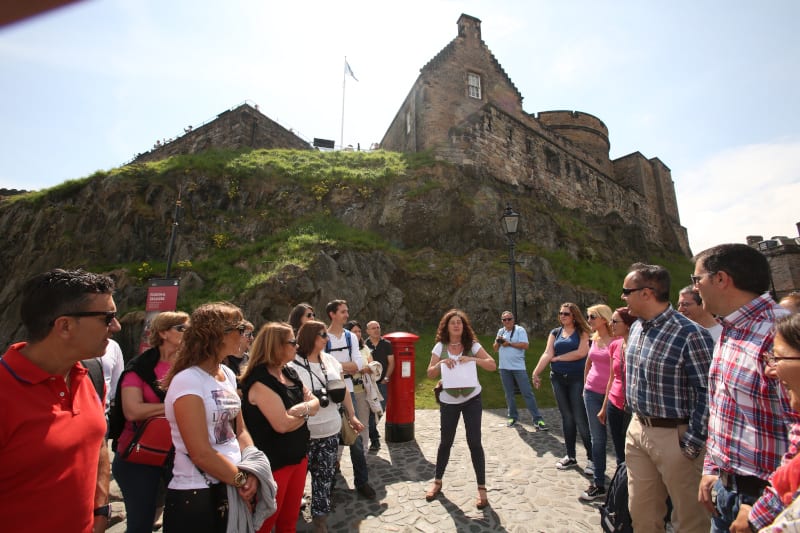
4. Organization and Time Management
Planning a well-structured itinerary:
Design an itinerary that flows smoothly, taking into account the time needed at each attraction and the logistics of transportation. Ensure a balanced mix of activities, allowing your guests to savor each experience without feeling rushed.
Do you know that you may employ the help from PlanTrips to draft up your initial itineraries?
Keeping track of time to ensure a smooth and enjoyable experience:
Be mindful of time and communicate clearly about meeting points, departure times, and any time-sensitive activities. Keep your group informed of the schedule throughout the tour, allowing them to relax and trust that you have everything under control.
5. Flexibility and Adaptability
Being prepared for unexpected changes or challenges:
No matter how meticulously you plan, unexpected situations can arise. Be flexible and prepared to adapt to changes in weather, unforeseen closures, or any other unforeseen circumstances. Embrace these moments as opportunities to showcase your problem-solving skills and provide alternative options for your guests.
Adjusting your plans to accommodate the needs of your group:
Every group has unique dynamics and requirements. Be attentive to your guests’ comfort levels, physical abilities, and individual needs. Adjust the pace, intensity, or content of your tour as necessary to ensure everyone feels included and valued.
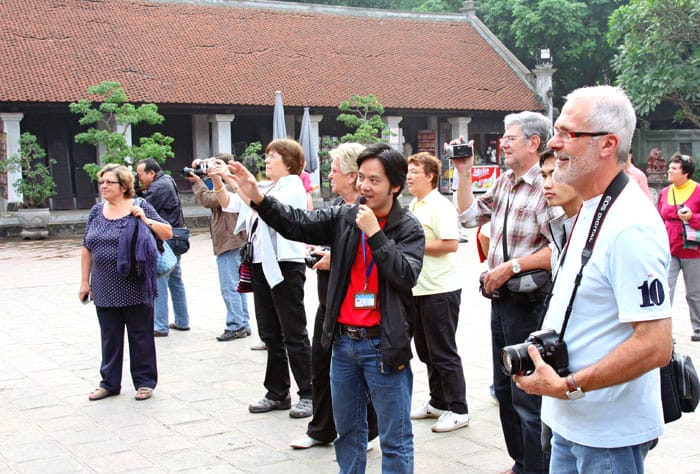
6. Excellent Communication Skills
Clear and concise communication with your group:
Effective communication is key to a successful tour. Speak clearly, use simple language, and avoid jargon or complex terminology. Ensure that everyone in the group can hear you by utilizing audio equipment when necessary.
Active listening and addressing any concerns or questions:
Actively listen to your guests and encourage them to ask questions or voice concerns. Be patient, empathetic, and responsive in your communication, ensuring that everyone feels heard and their queries are addressed promptly.
7. Leverage On Technology
At PlanTrips, we have the privilege of engaging with numerous tour guide friends, and while many of them may not be tech-savvy, those who embrace technology have experienced significant enhancements in their businesses.
Incorporating technology into their operations has brought about a noticeable improvement, streamlining processes, expanding their reach, and enhancing the overall customer experience. These tech-savvy tour guides have harnessed the power of digital tools to stay ahead of the curve, allowing them to thrive in an ever-evolving industry.
And it doesn’t have to be a rocket science! It can be a simple bio page.
Learn more about our Bio Page Master For Tour Guide course HERE !
Using a bio page as a tour guiding tip can greatly enhance the connection between a tour guide and their guests. A bio page provides an opportunity for the guide to introduce themselves, share their background, and receive payment/tip . It allows guests to get to know their guide on a personal level, fostering trust, and creating a sense of familiarity.
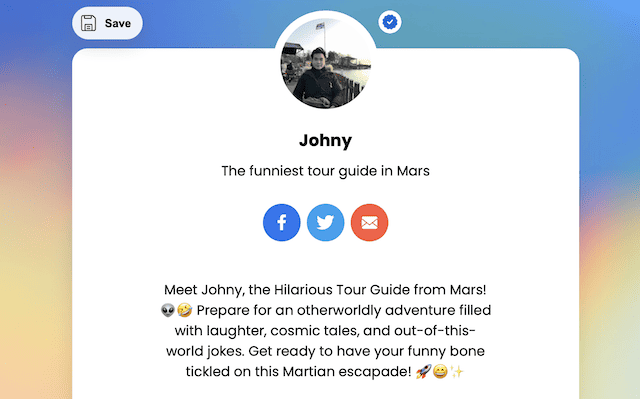
A. How can I improve my public speaking skills as a tour guide?
Improving public speaking skills takes practice. Consider joining a public speaking club, taking speech or theater classes, or seeking feedback from colleagues or mentors. Practice delivering your commentary aloud, focusing on clarity, pacing, and engaging delivery.
B. How do I handle difficult or disruptive participants?
Handling difficult participants requires tact and professionalism. Stay calm, listen to their concerns, and address them respectfully. If necessary, take the individual aside privately to resolve the issue. Remember to prioritize the comfort and enjoyment of the entire group.
C. What are some tips for managing large tour groups?
Managing large tour groups requires organization and effective communication. Utilize a sign or flag to gather attention, divide the group into smaller units if possible, and employ audio systems to ensure everyone can hear your commentary. Maintain a steady pace and provideenough time for group members to gather and move together.
Conclusion:
Becoming an exceptional tour guide is a journey of continuous learning and improvement. By implementing these tour guiding tips, you can enhance the experiences of your guests, leaving them with cherished memories and a deeper appreciation for the destinations they explore.
Remember to know your audience, master your knowledge, engage and connect, prioritize organization and time management, embrace flexibility, communicate effectively, and always be open to learning. With these skills in your arsenal, you are well on your way to becoming a remarkable tour guide, creating unforgettable journeys for travelers from all walks of life.
Fun Fact: Did you know that some tour guides have unique talents or specialties that add an extra touch of excitement to their tours? From singing guides to history buffs who dress up in period costumes, these fascinating individuals go above and beyond to make every tour an extraordinary experience. Keep an eye out for these exceptional guides as you embark on your next adventure!
5 thoughts on “Tour Guiding Tips: Creating Memorable Experience”
- Pingback: Free Bio Page Mastery For Tour Guides Course | PlanTrips
- Pingback: FREE Bio Page: Empowering Non-Techy Tour Guides | PlanTrips
- Pingback: Travel Blogs in Spanish: Hispanic Adventures | PlanTrips
- Pingback: Private Tour Guide: Unlocking the Benefits | PlanTrips
- Pingback: Travel Hacks: The Secrets to Smooth Adventures | PlanTrips
Leave a Comment Cancel reply
Save my name, email, and website in this browser for the next time I comment.
About Johny D.
Tour Guide: How To Find A Perfect One?
Travel blogger anxiety: how to cope with it.

IMAGES
COMMENTS
Tour guiding skills are techniques that individuals use when giving a guided tour to an audience. Tour guides often use their skills in historical landmarks, museums, parks, resorts and cities, helping travelers and guests learn more about the location they're visiting and answering any of their questions. They can also give different types of ...
Essential Skills for Tour Guides. Communication Skills: Tour guides must possess excellent verbal communication skills to convey information clearly and effectively. They should be able to articulate themselves well, speak loudly and clearly, and adapt their communication style to suit different audiences. Interpersonal Skills: Building rapport ...
They should be knowledgeable about the history, culture, landmarks, and other significant aspects of the place. Tour guides should be able to answer questions, share interesting facts, and engage their guests in informative discussions. 2. Interpreter: Tour guides bridge the gap between different cultures and languages.
A guide's ability to speak the local language fluently is key to a seamless and enriching travel experience. 6. Excels at tour planning and logistics. A tour guide takes care of coordinating transportation. | Photo. A tour guide's role in overseeing and executing the logistical aspects of a tour is crucial.
Tour guides' communication skills refer to the ability to explain roles and relationships of something such as tourist attractions, historical backgrounds, or general stories while publicizing an organization at the same time. It aims to educate, entertain, or encourage tourists' awareness more on preservation and value of things ...
The changing nature of tour guide communication: a typology. Drawing on the foregoing review of research on tour guides' roles in mediating experiences together with current trends, we now turn to mapping the factors that will influence how guides communicate with tourists in the future, against their communication styles, skills and outcomes.
Here are some important skills for a tour guide to have that can really make or break the overall tourist experience. 1. Strong Communication Skills. Strong communication skills are extremely important in tour guiding. Tour guides must be articulate, engaging, and capable of answering multiple guest questions.
They use their communication, critical thinking and attention to detail skills to help visitors understand the rules. Answering questions: Tour guides may use their knowledge and communication skills to answer the questions of tourists. They may use their sense of humour skills to provide accurate and engaging answers to visitors.
In tour guiding operations the tourists learn a lot about a country and its features, while the tour guide also learns about the different types of tourists. Effective communication is clear. There is no ambiguity (vagueness or confusion) about what it is the person is trying to convey. The tour guide can try to make his/her communication clear ...
As a tour guide, communication will be your main tool in informing and guiding guests around sites and keeping their interest. Below, we have some suggested reasons why communication is so important in a tour guiding context. After reading through them, why don't you tackle the activities which follow, which are based on some of the main ...
Definition, Types and Salary. Working as a tour guide can be a great way to meet new people, travel, share incredible experiences and learn more about a culture or place. Becoming a guide is often an educational and rewarding experience. There are many guiding opportunities available that can suit a variety of interests and skill sets.
A tour guide or a tour leader will often interpret gaze in different situations - a historical site, a walking tour, a church, a museum, or a natural setting. However, the basic principles of communication will remain the same, and a tour guide or leader must perfect their interpersonal communication skills. According to the dictionary ...
8. Feedback Loop. An astute tour guide values feedback. It's how you refine, improve, and elevate your tours. Encourage tourists to share their thoughts and always be open to constructive criticism. 9. Stay Updated. From local events to new historical discoveries, a tour guide is always learning.
Communication is the sharing of verbal and non-verbal information between a source and receiver according to certain rules. As a tour guide, effective communication is important to inform tourists, clarify information, promote attractions, build relationships with customers and colleagues, and evaluate services through feedback. The goals of communication in tour guiding are to ensure tourists ...
Crafting a Memorable Tour with Technique and Script. The way you present your tour can make all the difference. Here's where technique and script come alive: Engaging Scripts: Captivate with stories rather than dates. Technique: Vary your tone, use pauses, and don't be afraid to add a personal touch. David Ciccarelli.
Purpose - The purpose of this research is to evaluate the communication competency of tour guides using a modi ed importance-performance analysis (MIPA). Tour guides are cultural ambassadors of a
Tour guiding is a profession brimming with potential for those who have a passion for history, culture or the outdoors. Tour guides undertake the significant task of rendering unfamiliar places accessible to tourists from various parts of the globe. The qualifications of a tourist guide go beyond formal education.
A tour guide plays a vital role in enhancing the travel experience by expertly navigating travellers through their destination while offering valuable information and support. Beyond being a mere facilitator, a tour guide assumes the role of a cultural ambassador, fostering meaningful connections and promoting mutual understanding between ...
Handling Logistics and Itinerary Planning. A significant part of a tour guide's role is to handle the logistics and planning of the itinerary for a smooth and organized travel experience. From arranging transportation to coordinating activities, tour guides take on various responsibilities to ensure a seamless journey.
Check out our tips for effective intercultural communication below. 2. Tour guides are brand ambassadors. Your logo isn't the only face of your brand — your tour guides are, too. Everything they do and say is a direct reflection of your tour company. When they make a fool of themselves, they also make a fool of your business.
search on tour guiding tasks with a particu-lar focus on the language aspects of tour guiding. The paper presents authentic con-versations between the guides and the tourists during guidEd tours. The guides in thisstudywerenon-nativespeakersofEng-lish and the tourists were native speakers of English from different English speaking countries.
Keeping track of time to ensure a smooth and enjoyable experience: Be mindful of time and communicate clearly about meeting points, departure times, and any time-sensitive activities. Keep your group informed of the schedule throughout the tour, allowing them to relax and trust that you have everything under control. 5.
The seven theoretical indicators used in the identification of the factual problems of intercultural communication are all things that hinder the occurrence of effective communication (Chaney and Martin, 2014, p.11). The forms of intercultural communication barriers found include; (1) Two forms of verbal polarization.